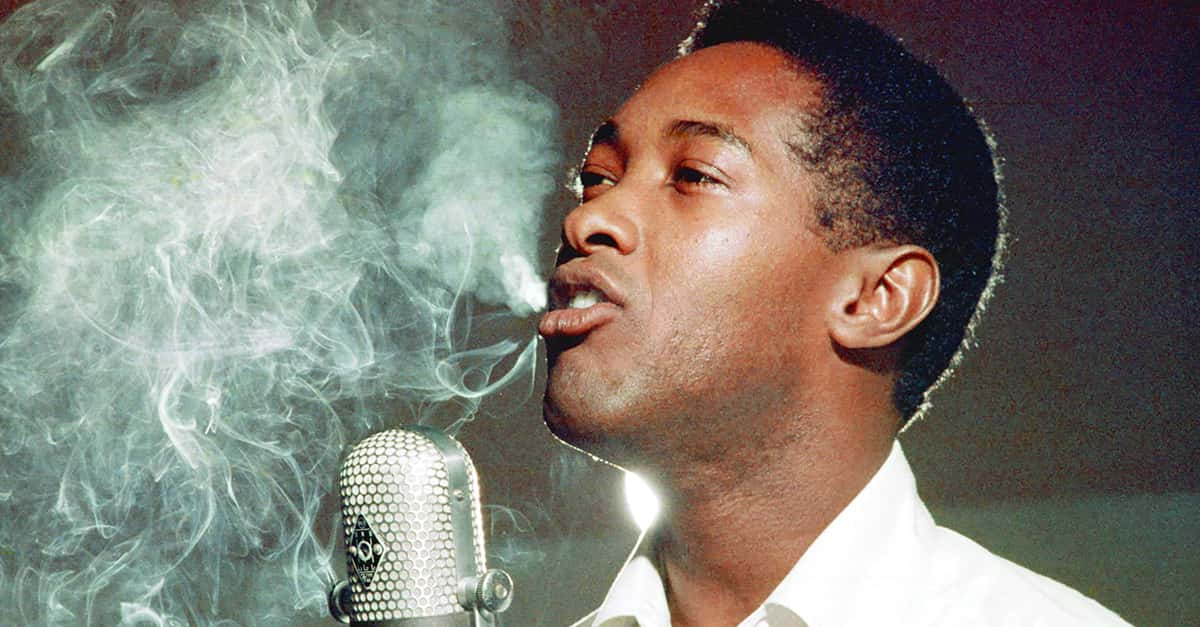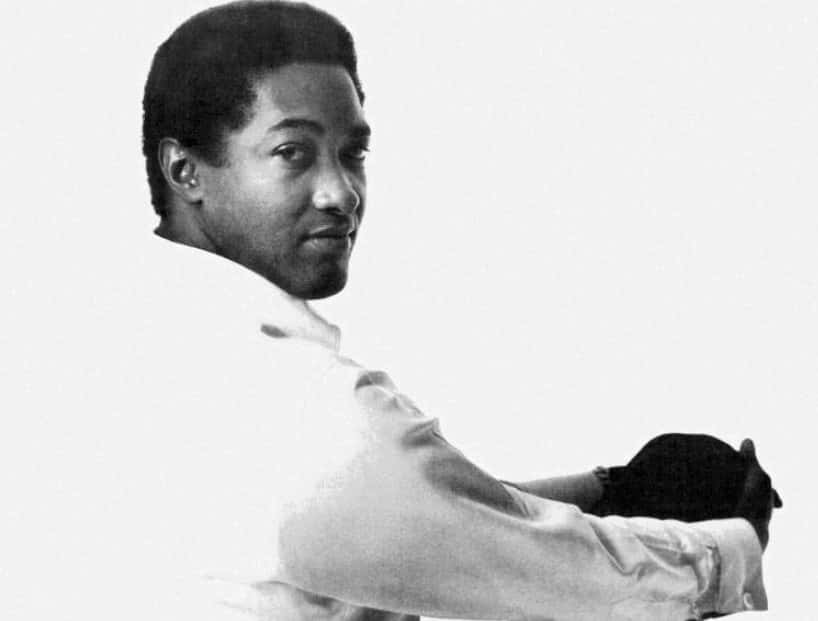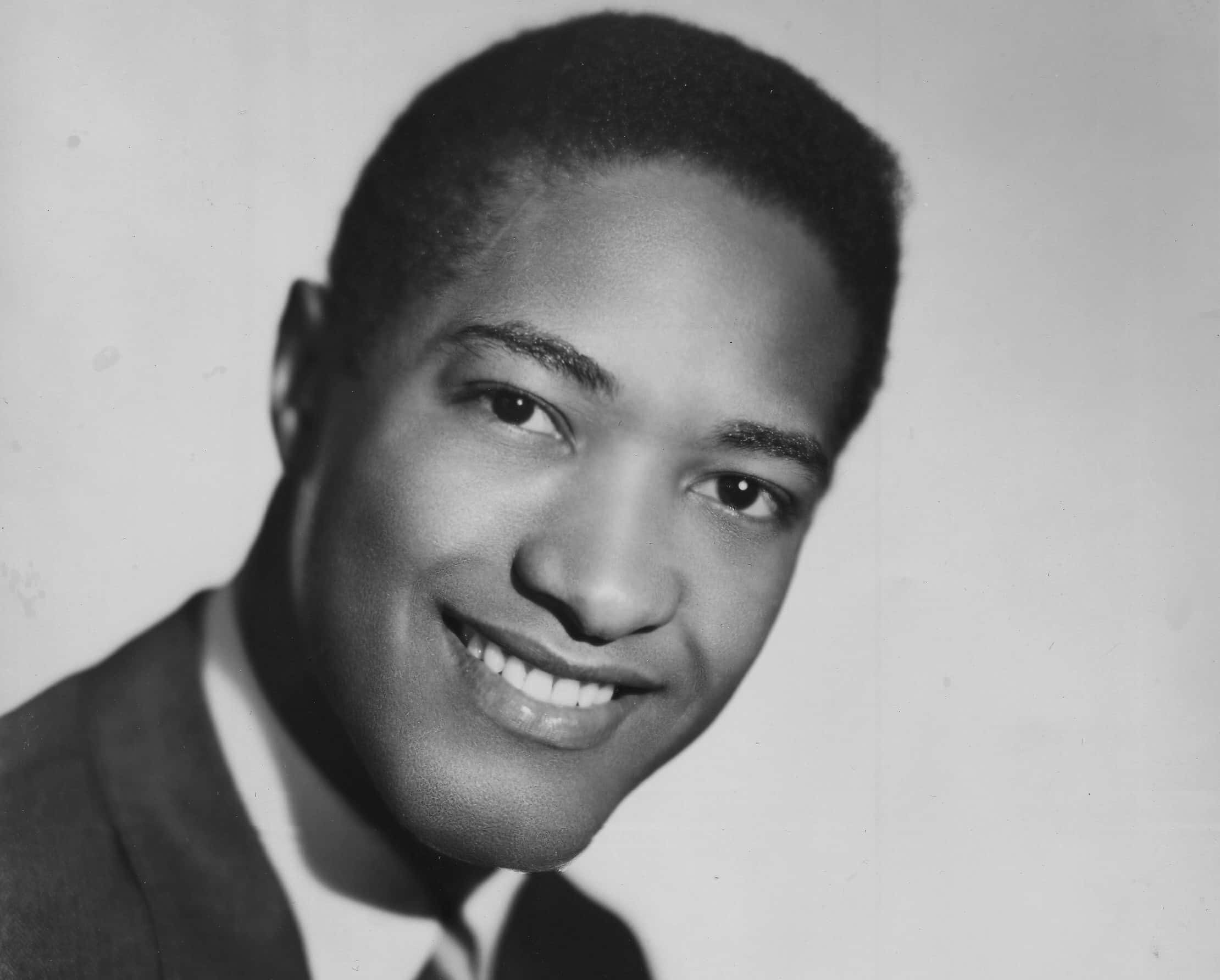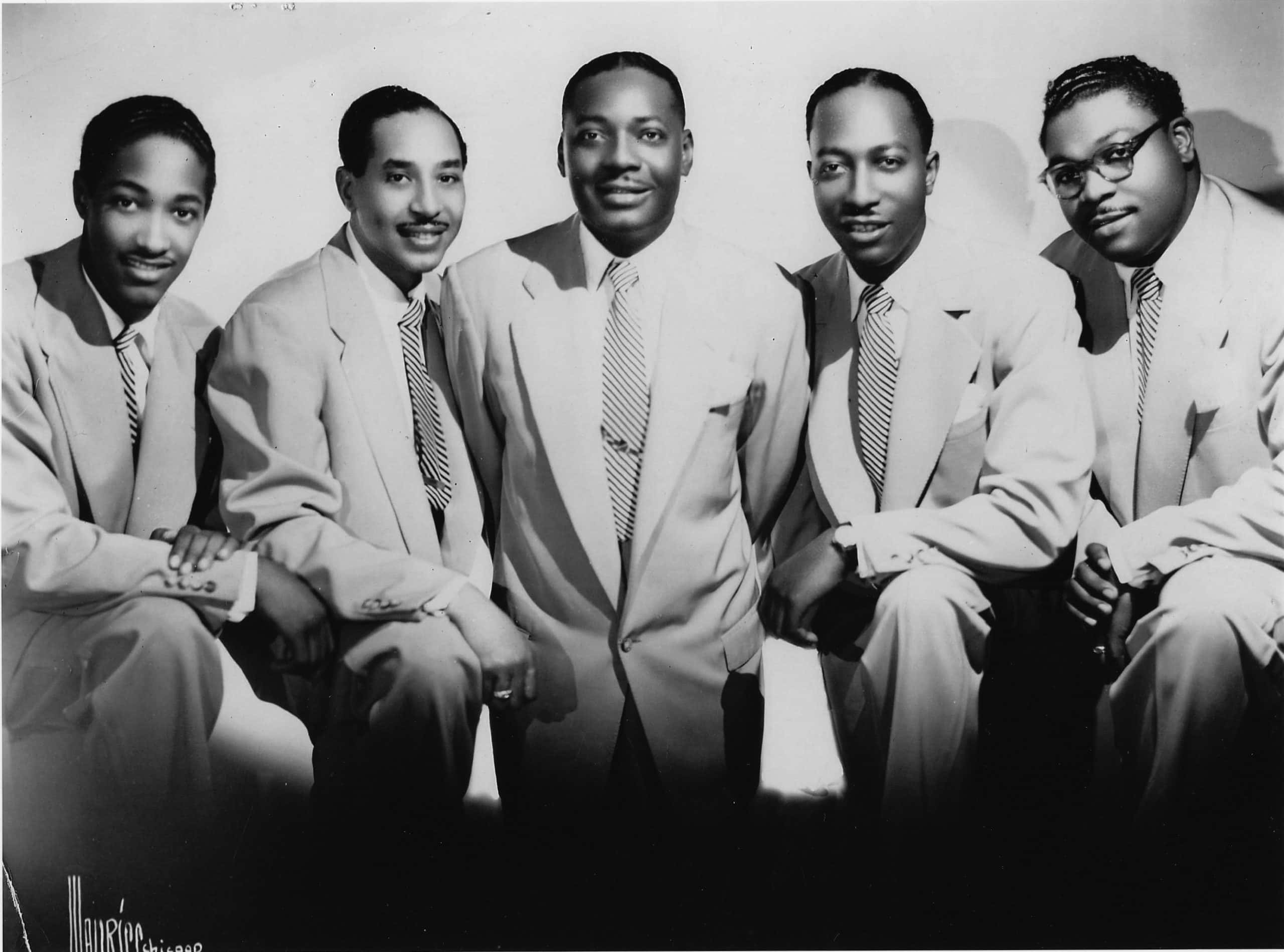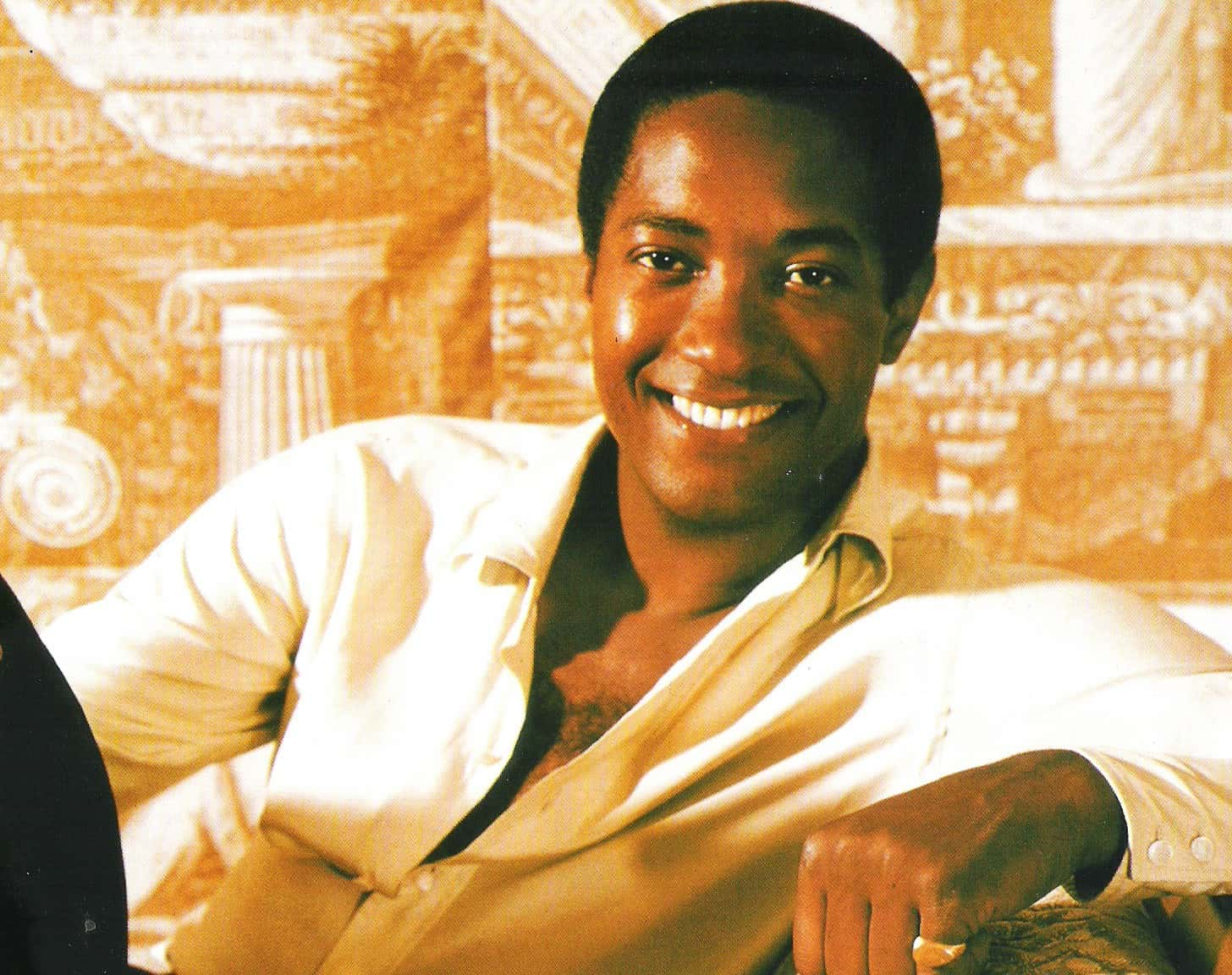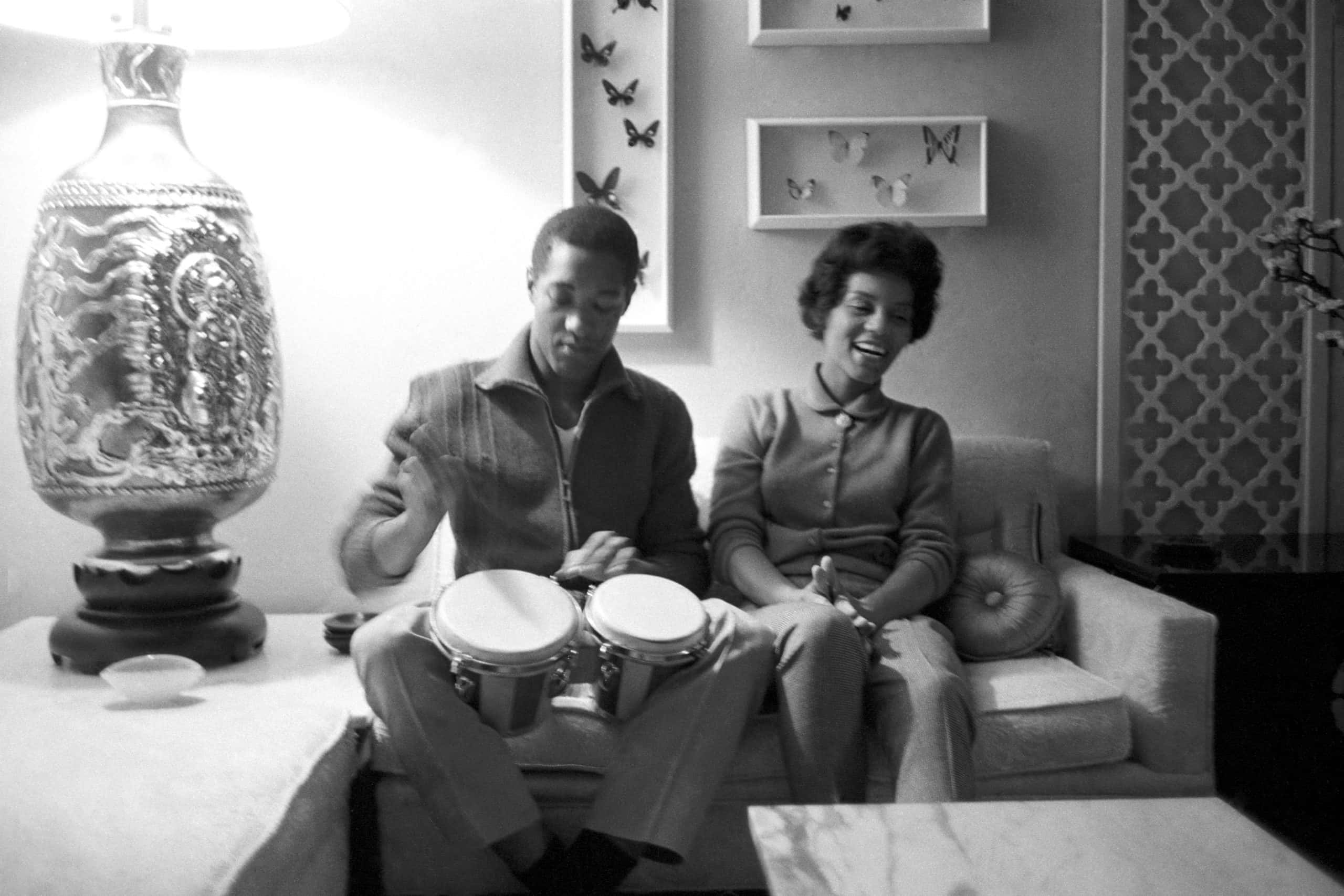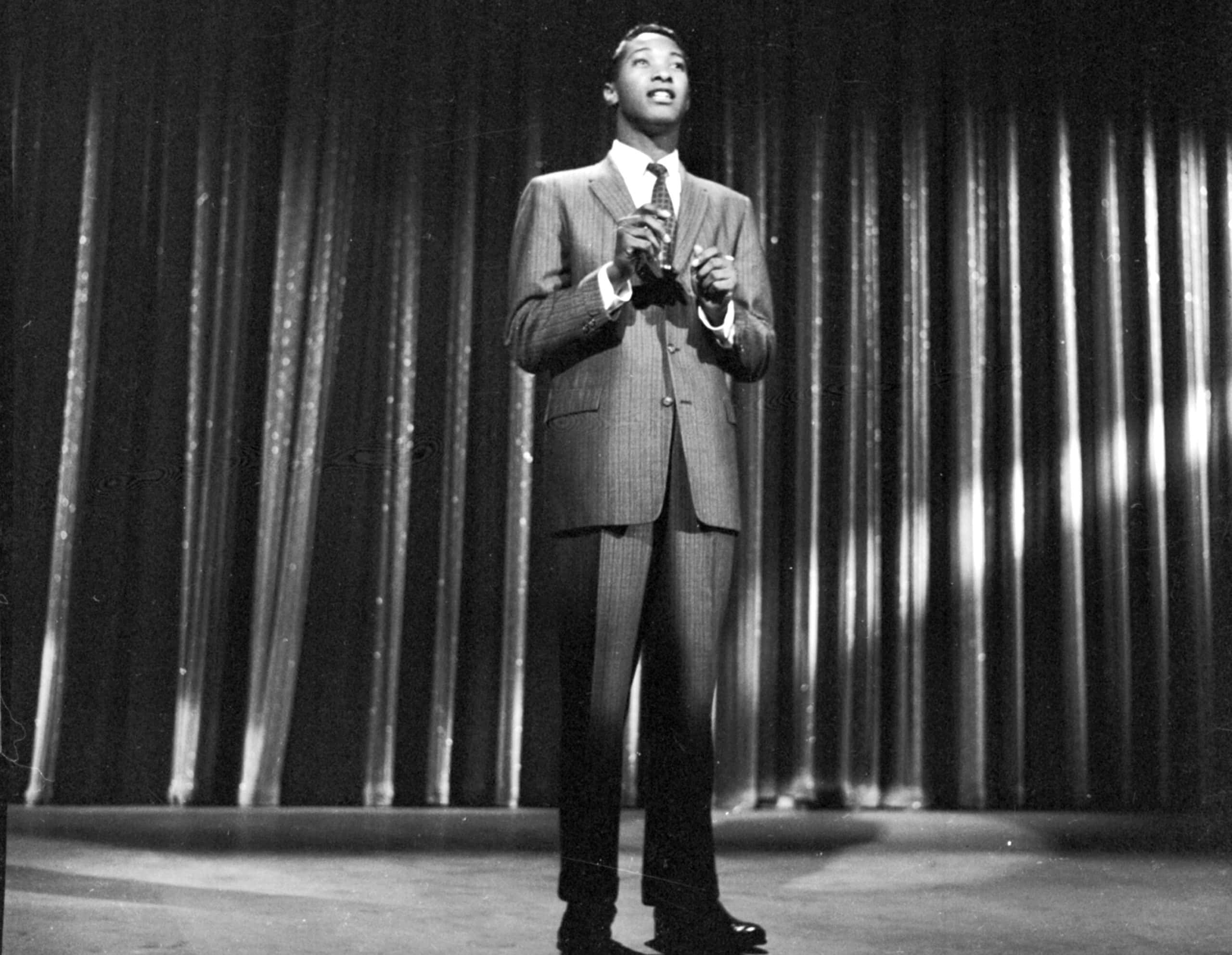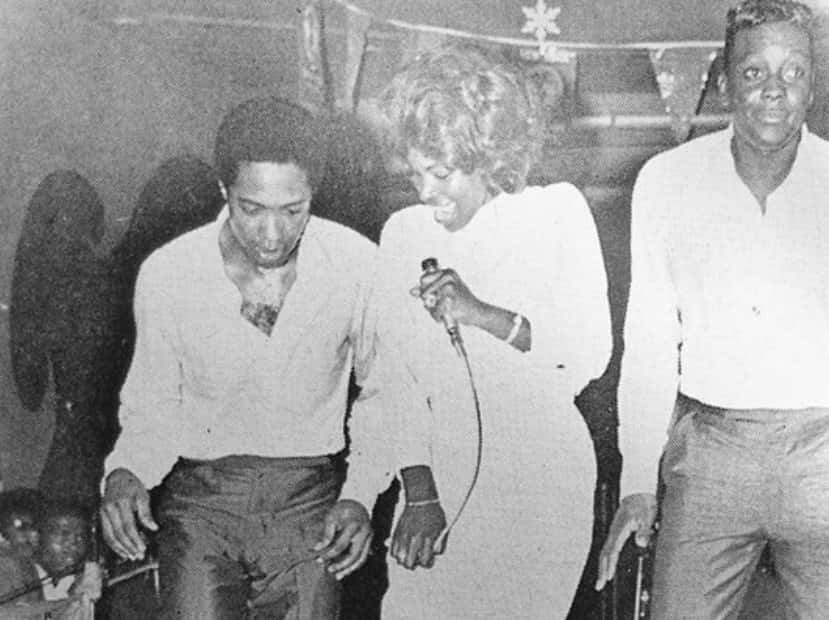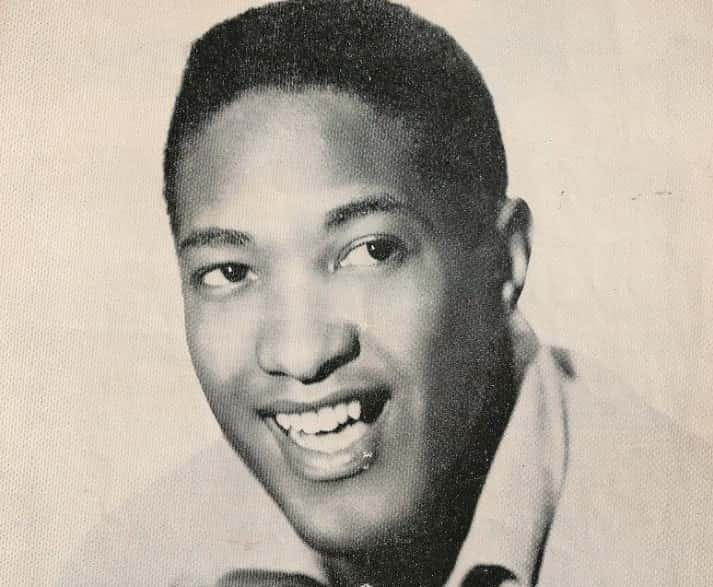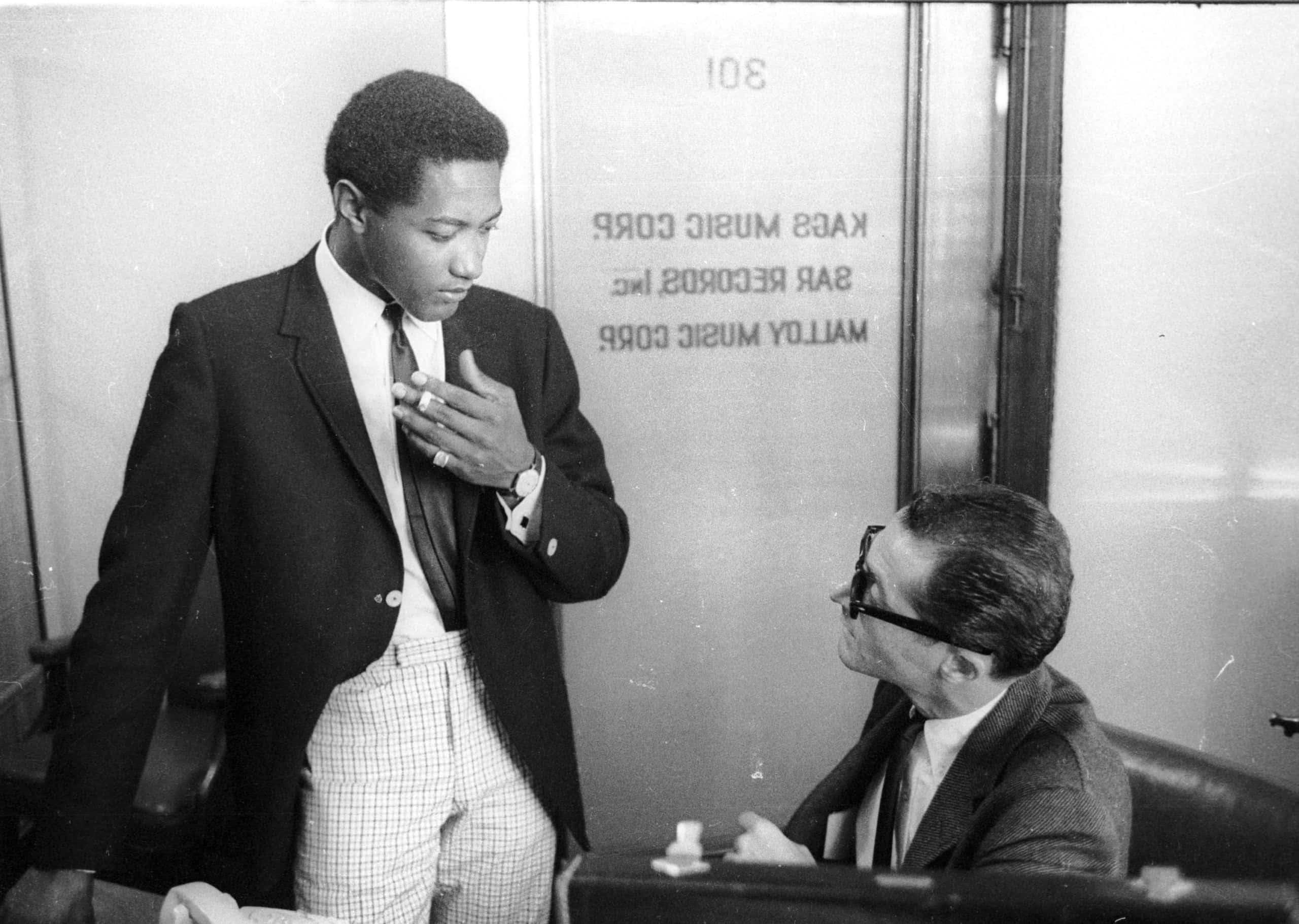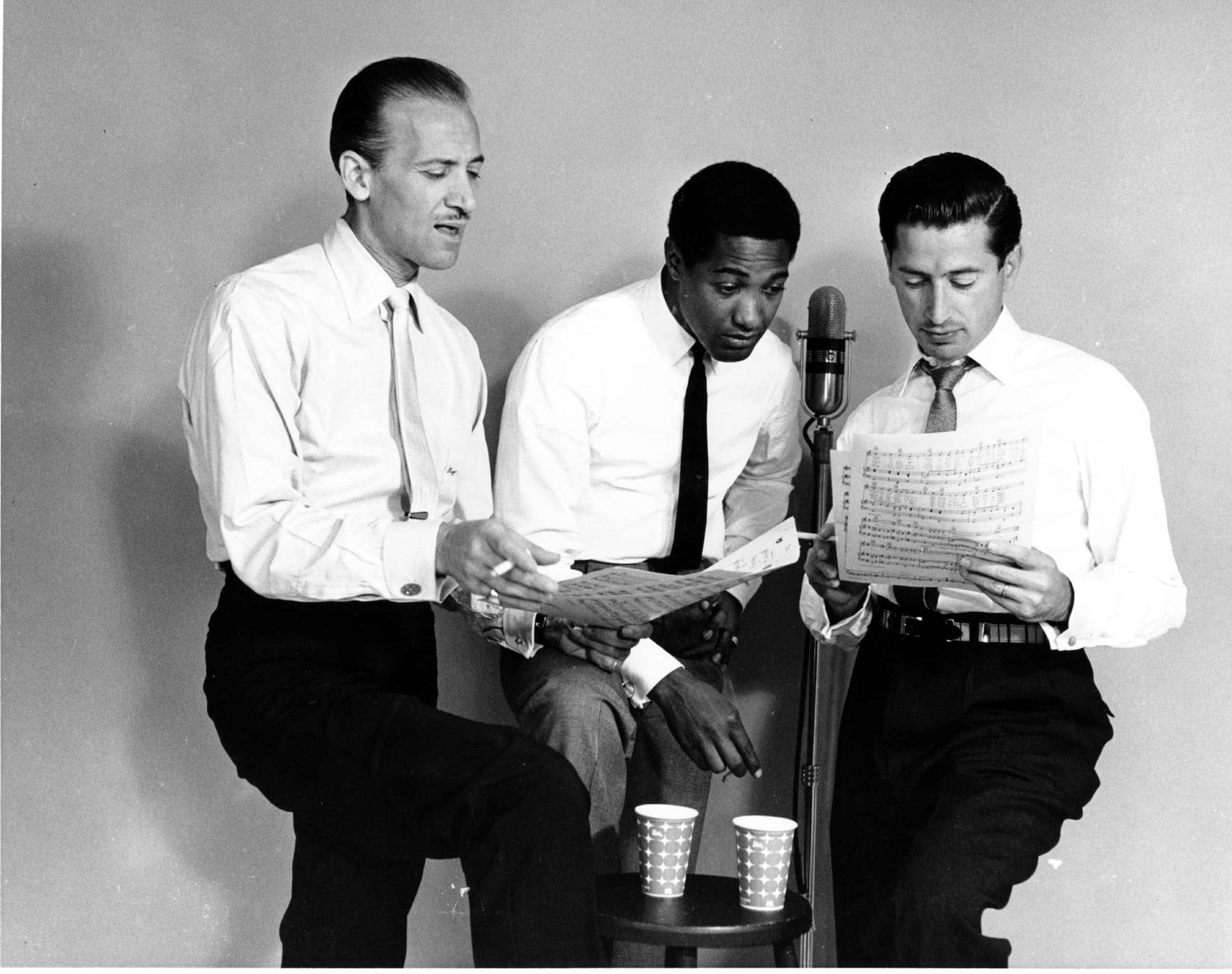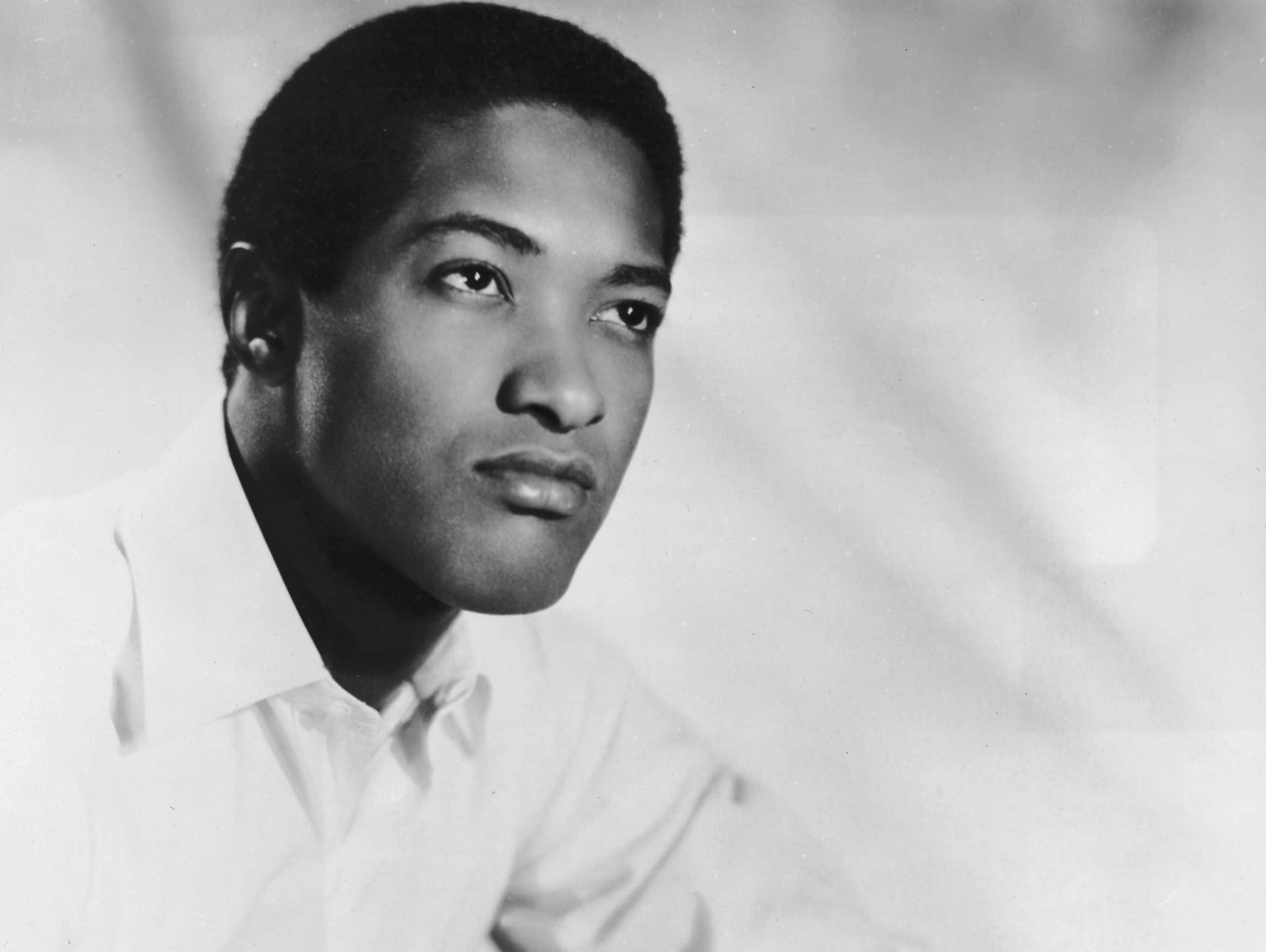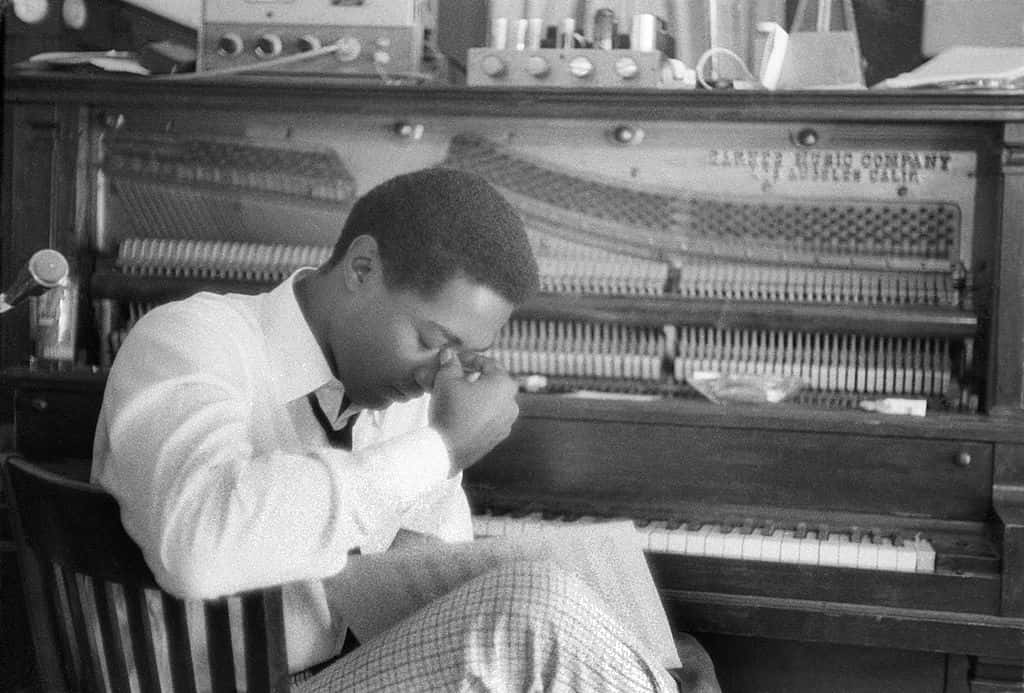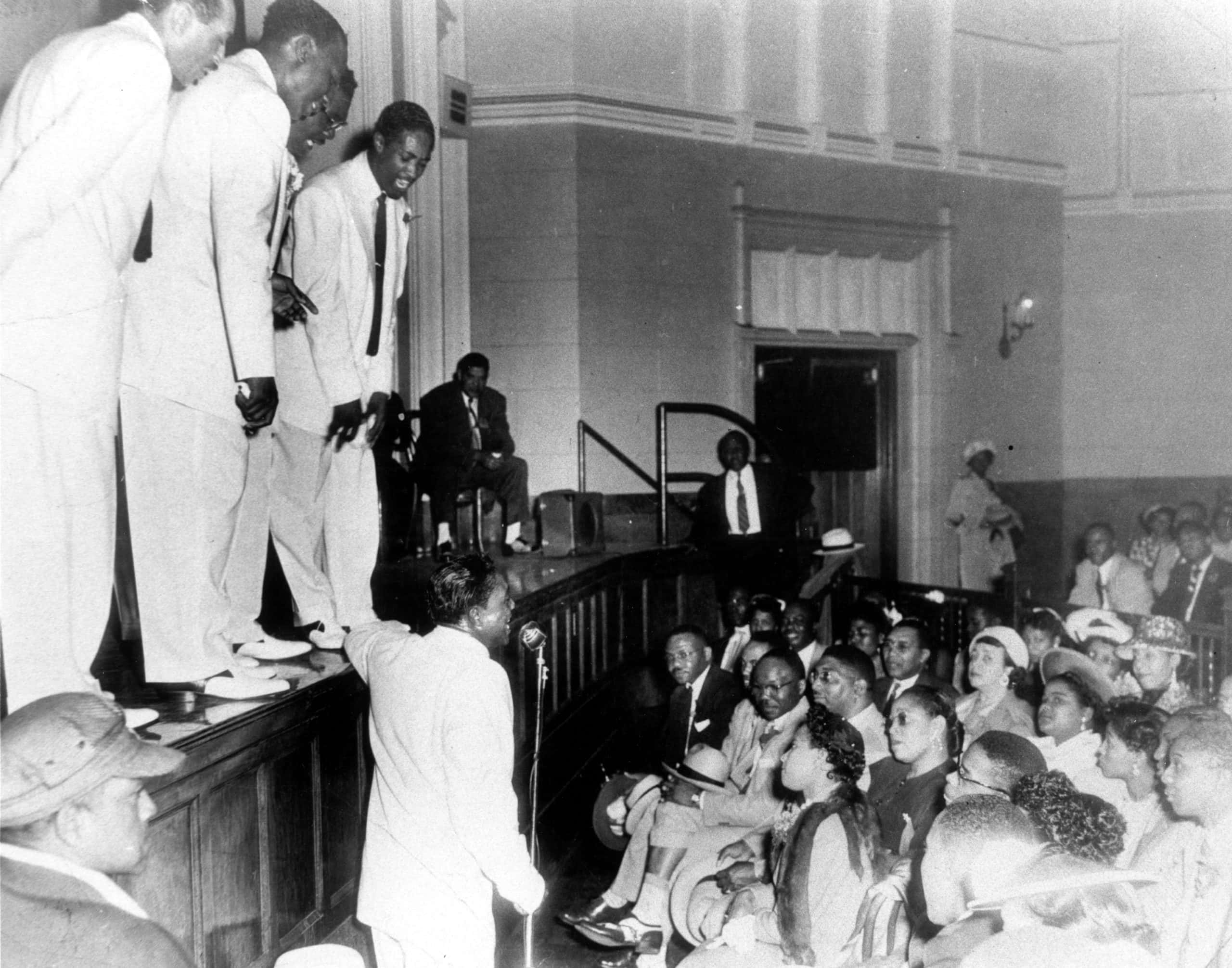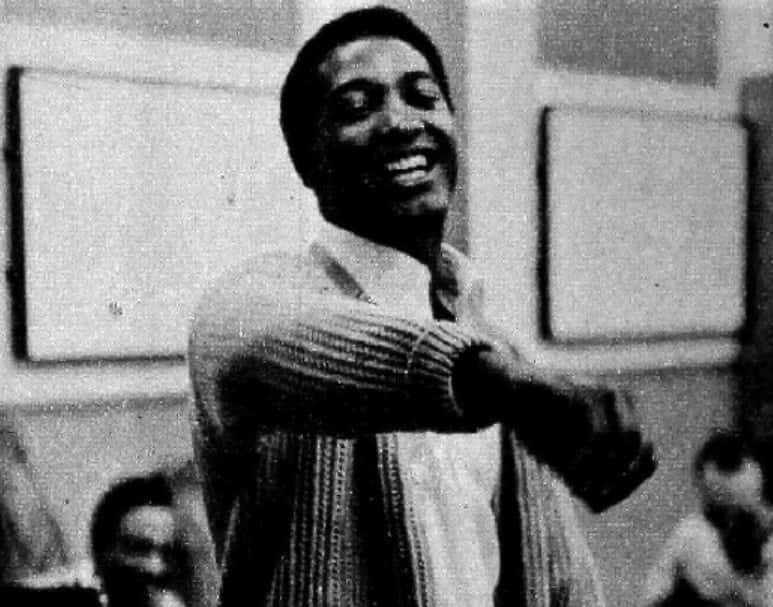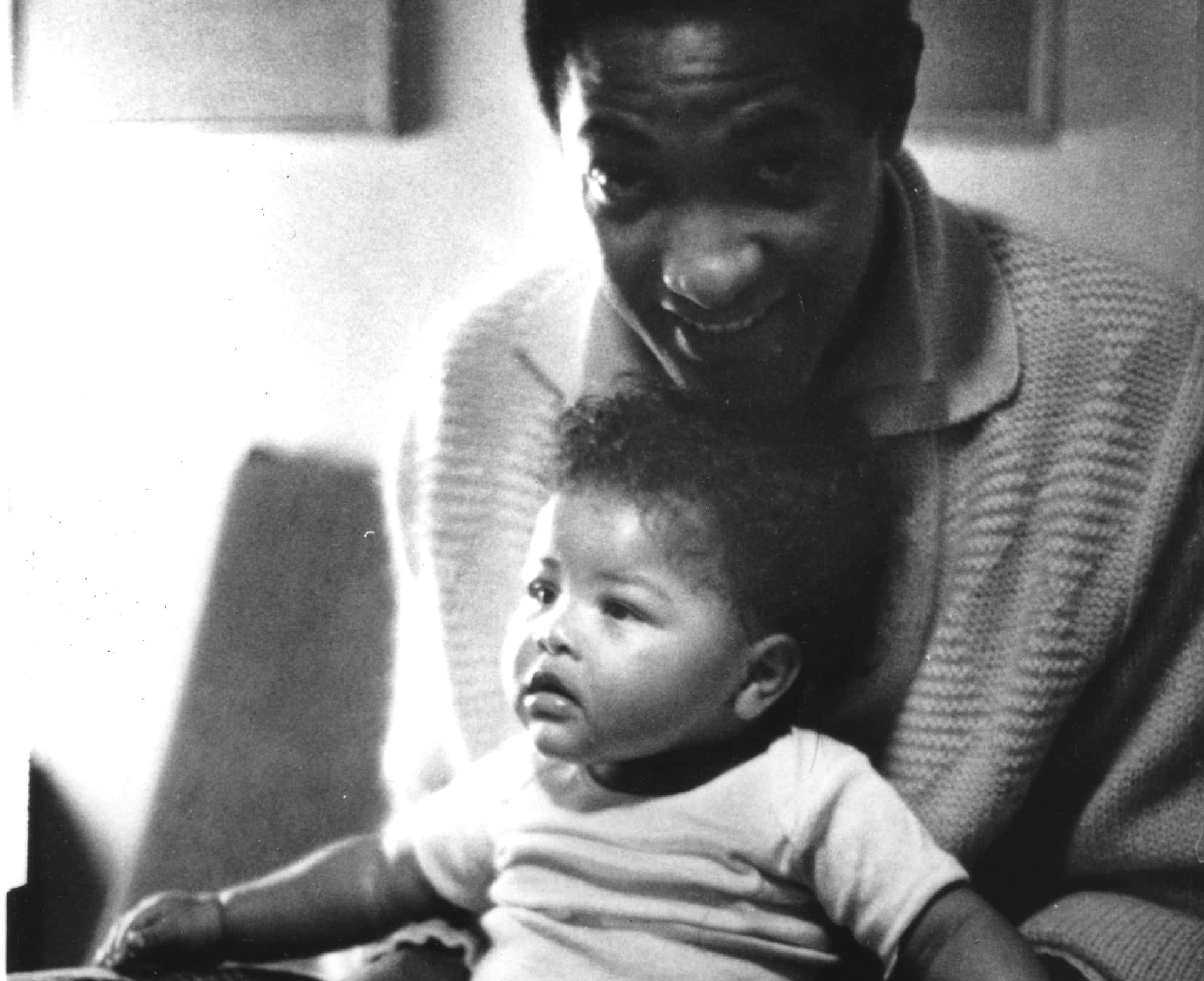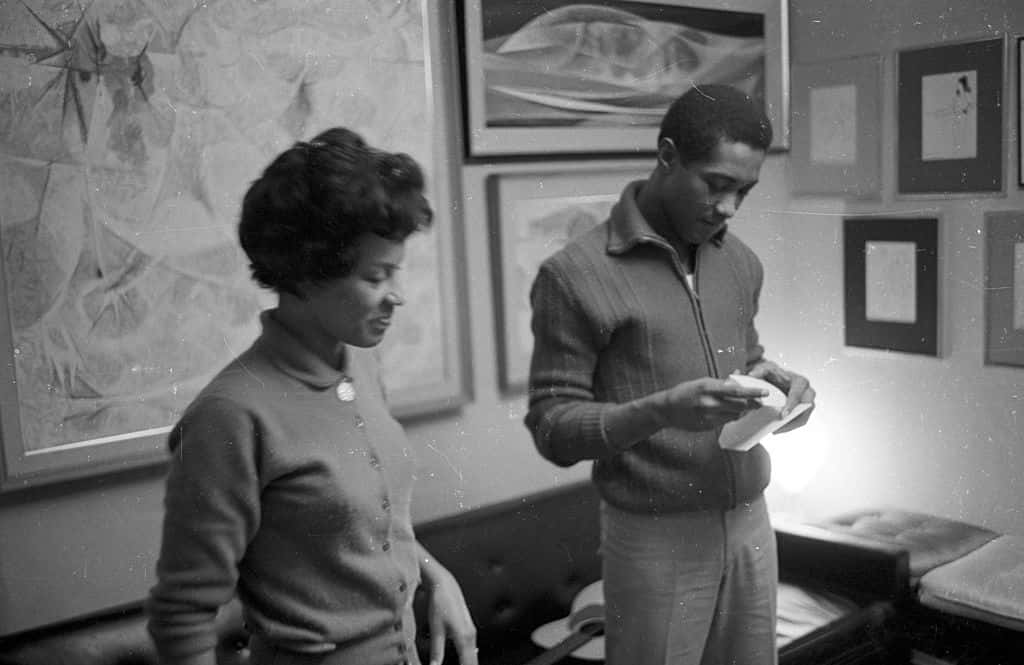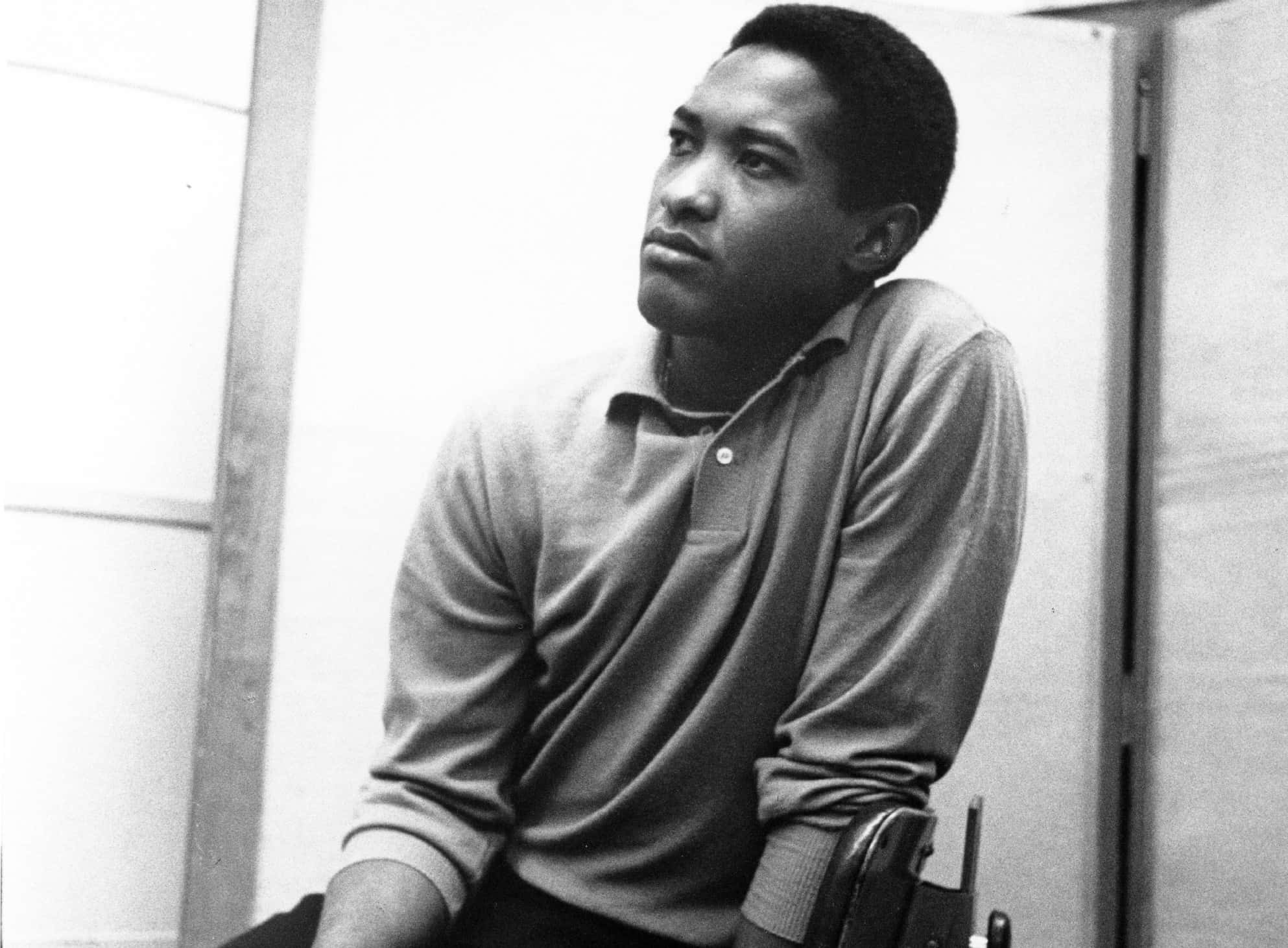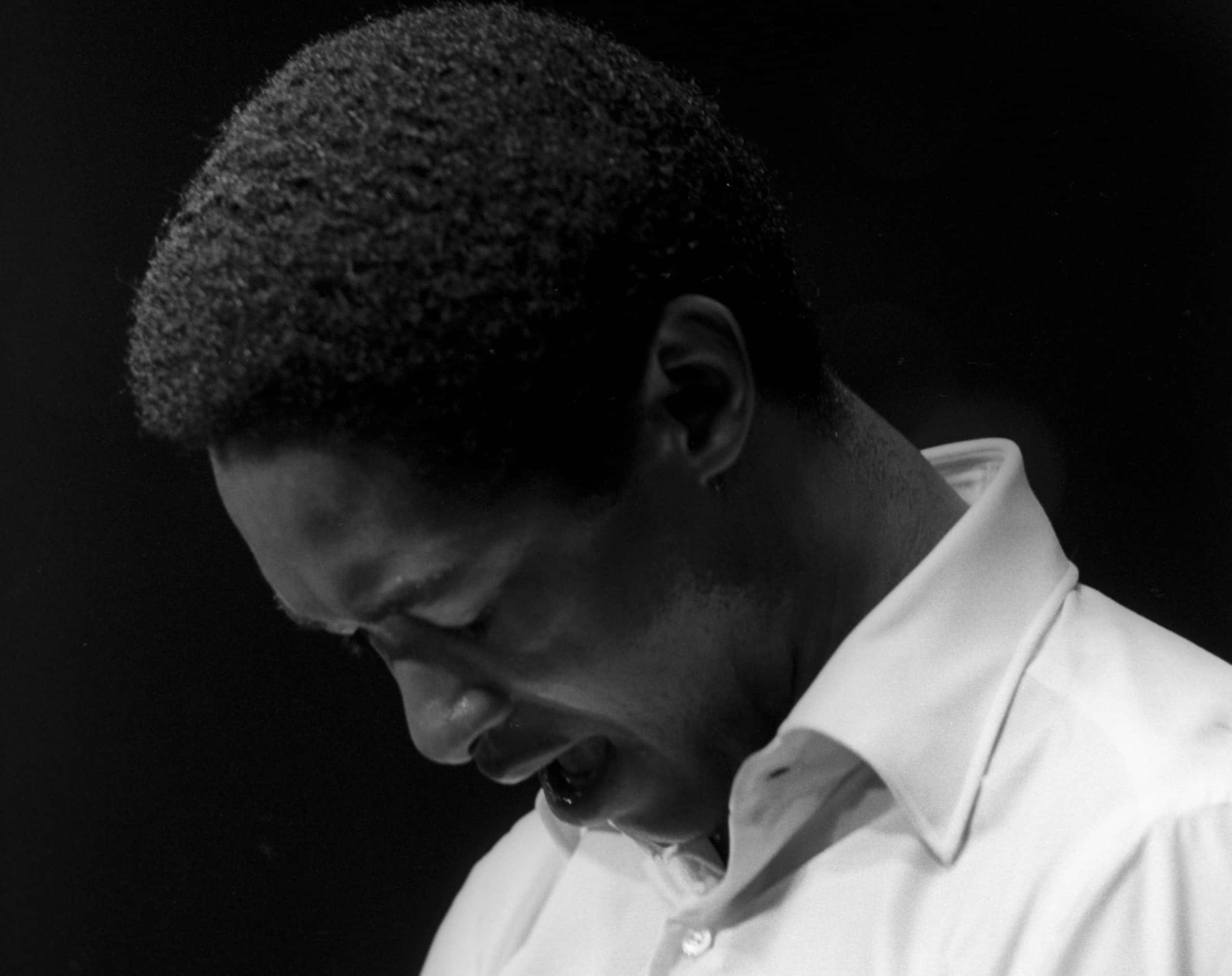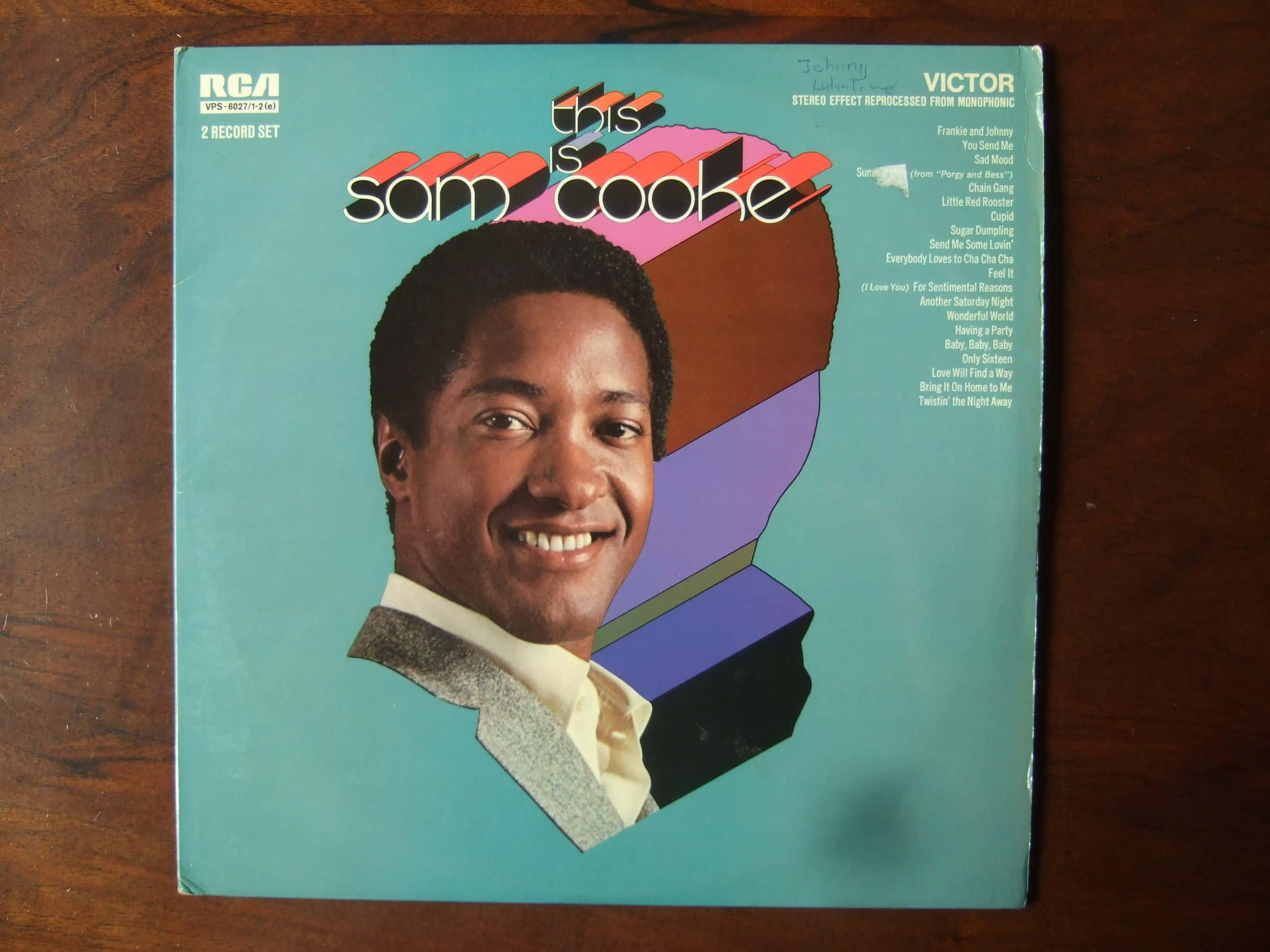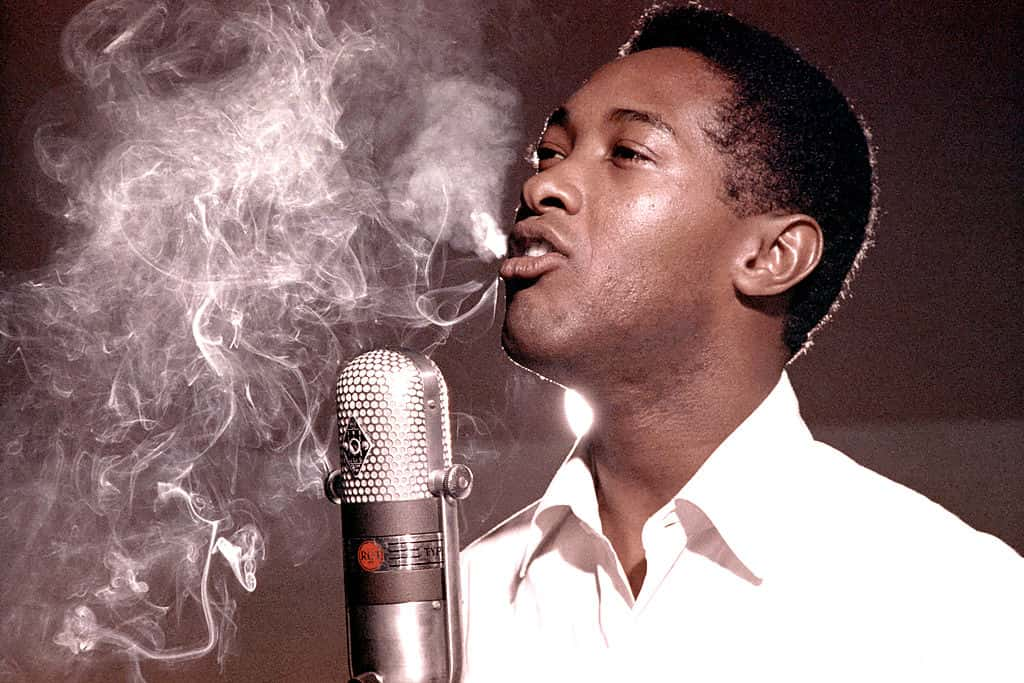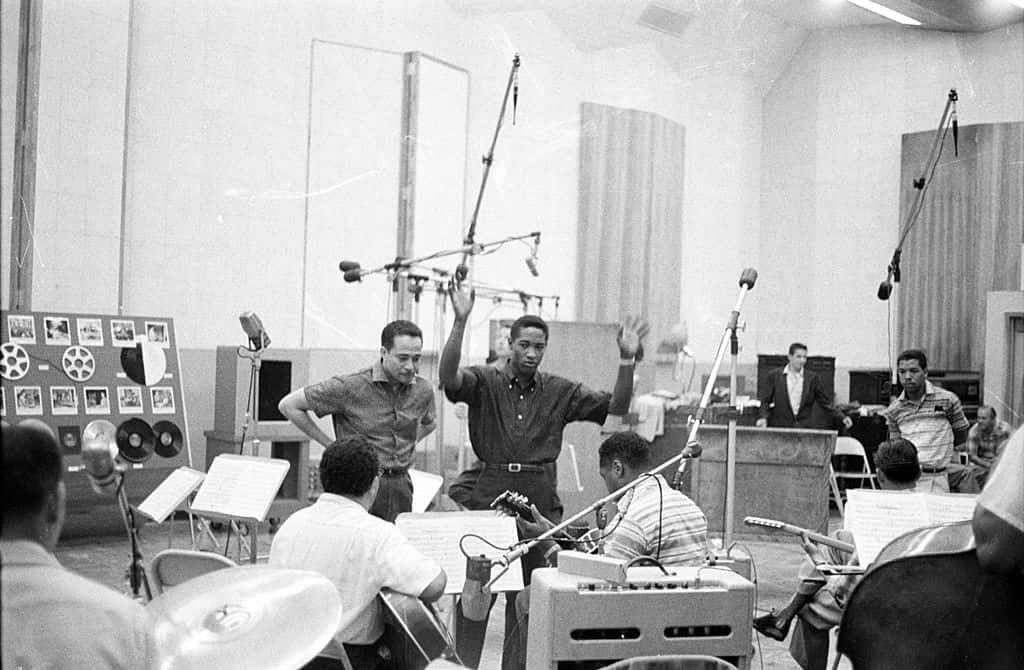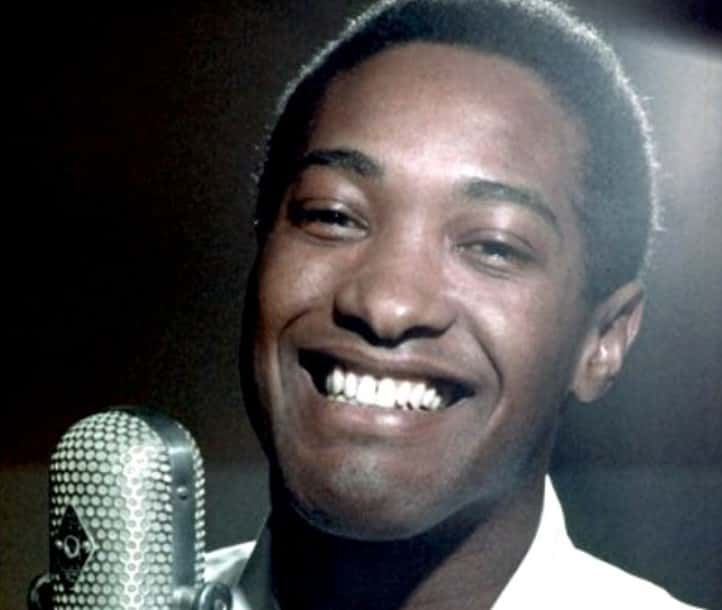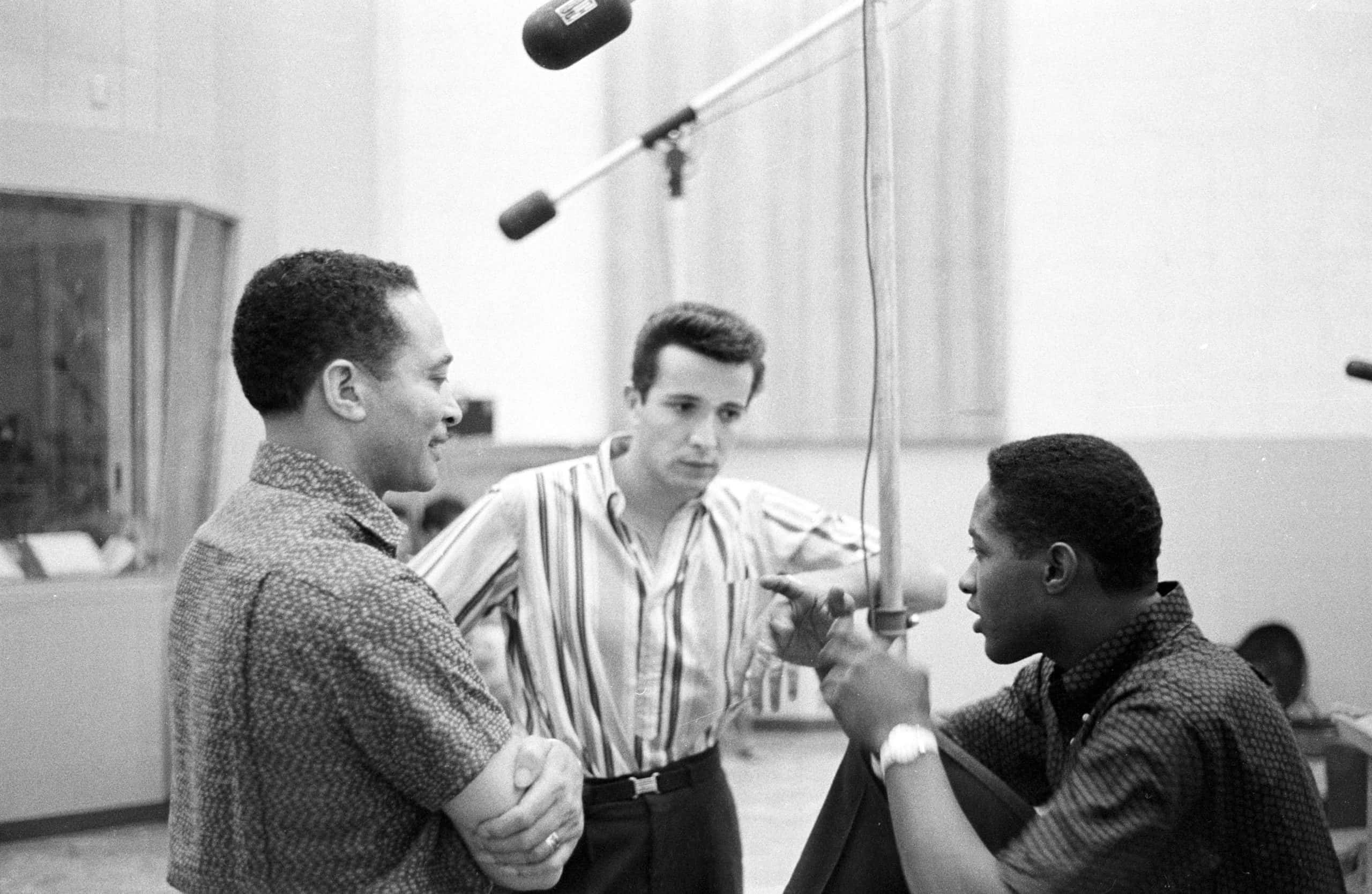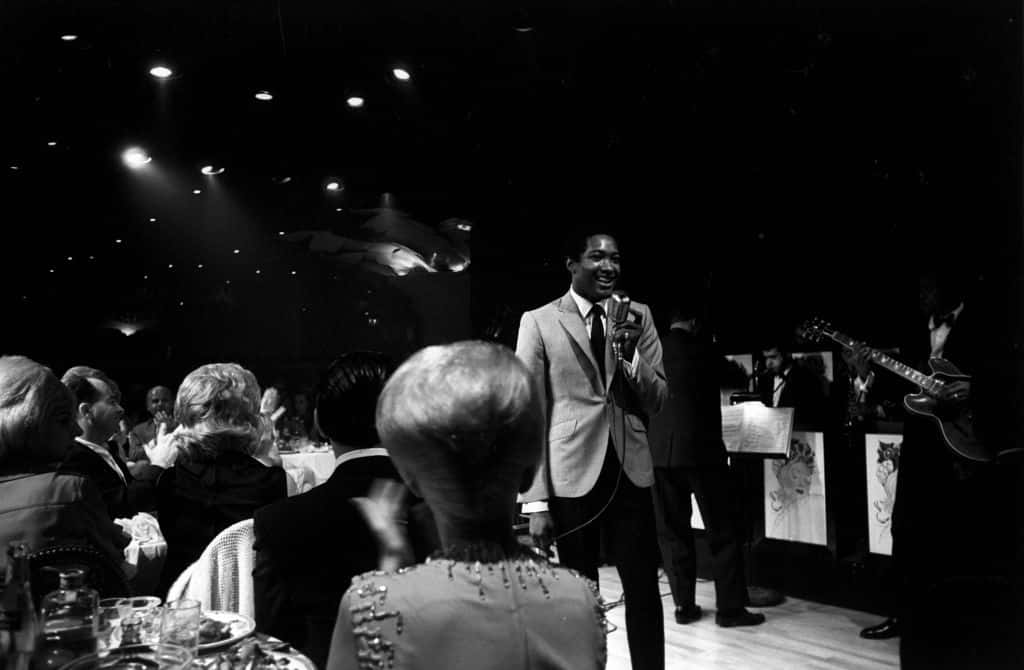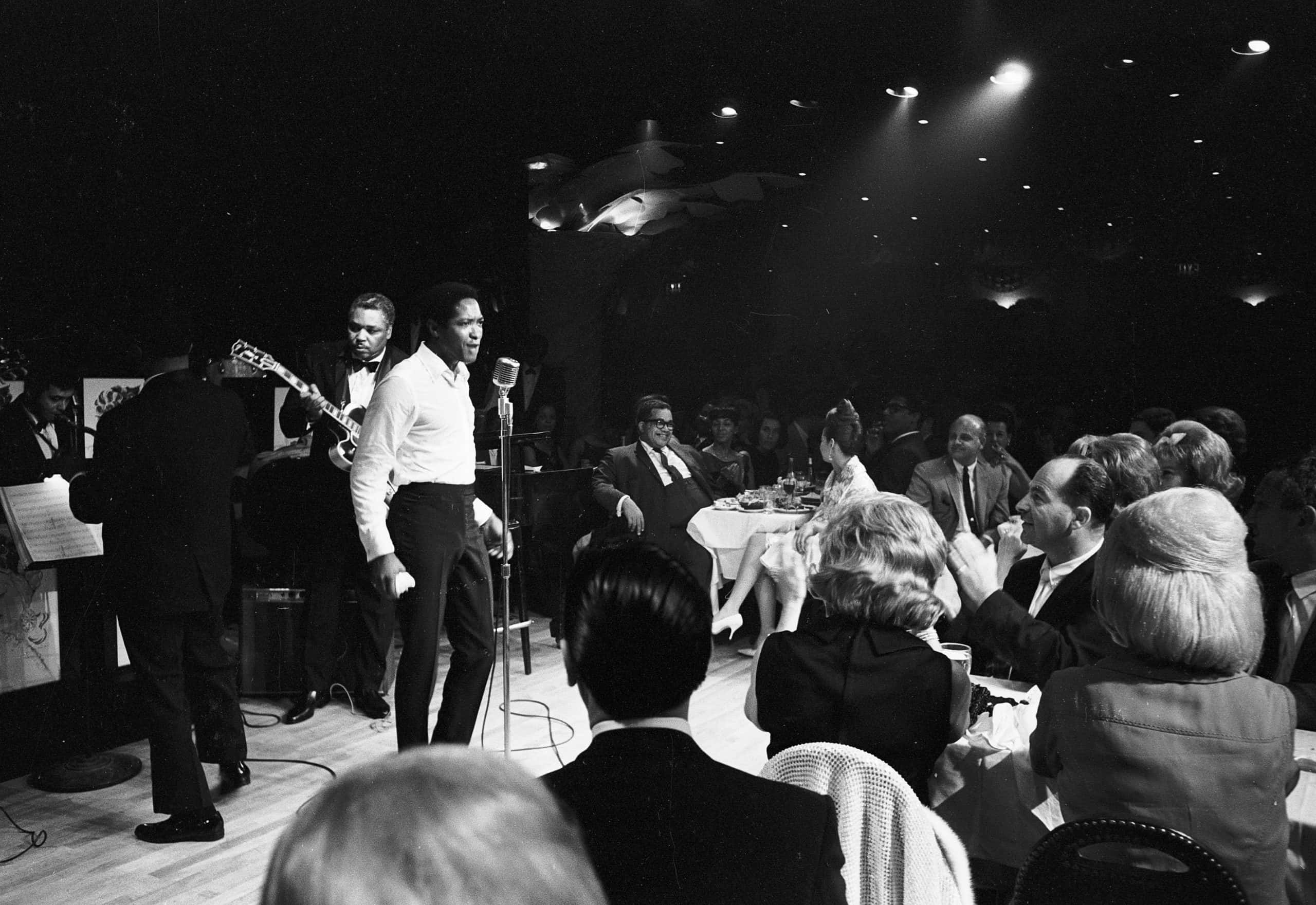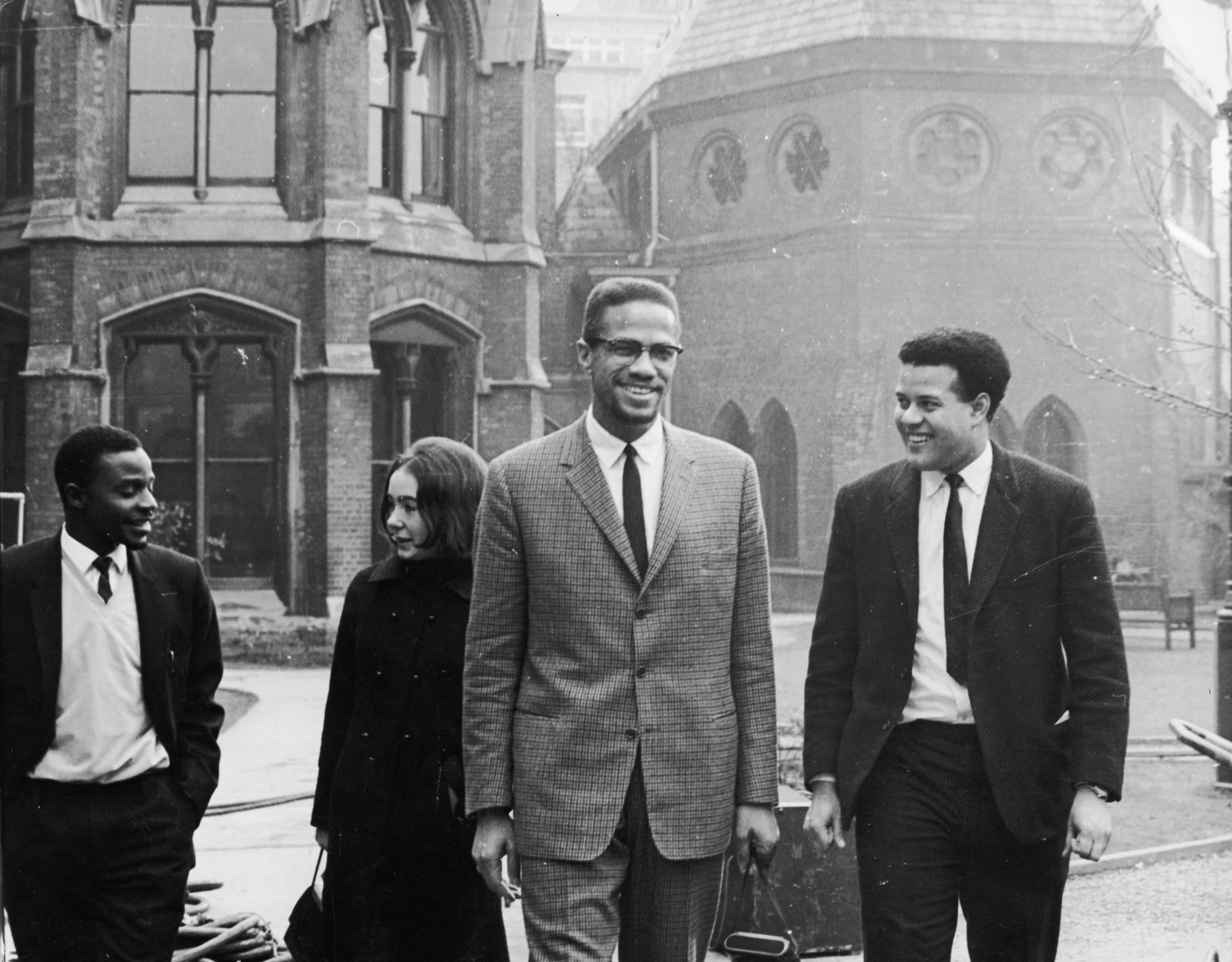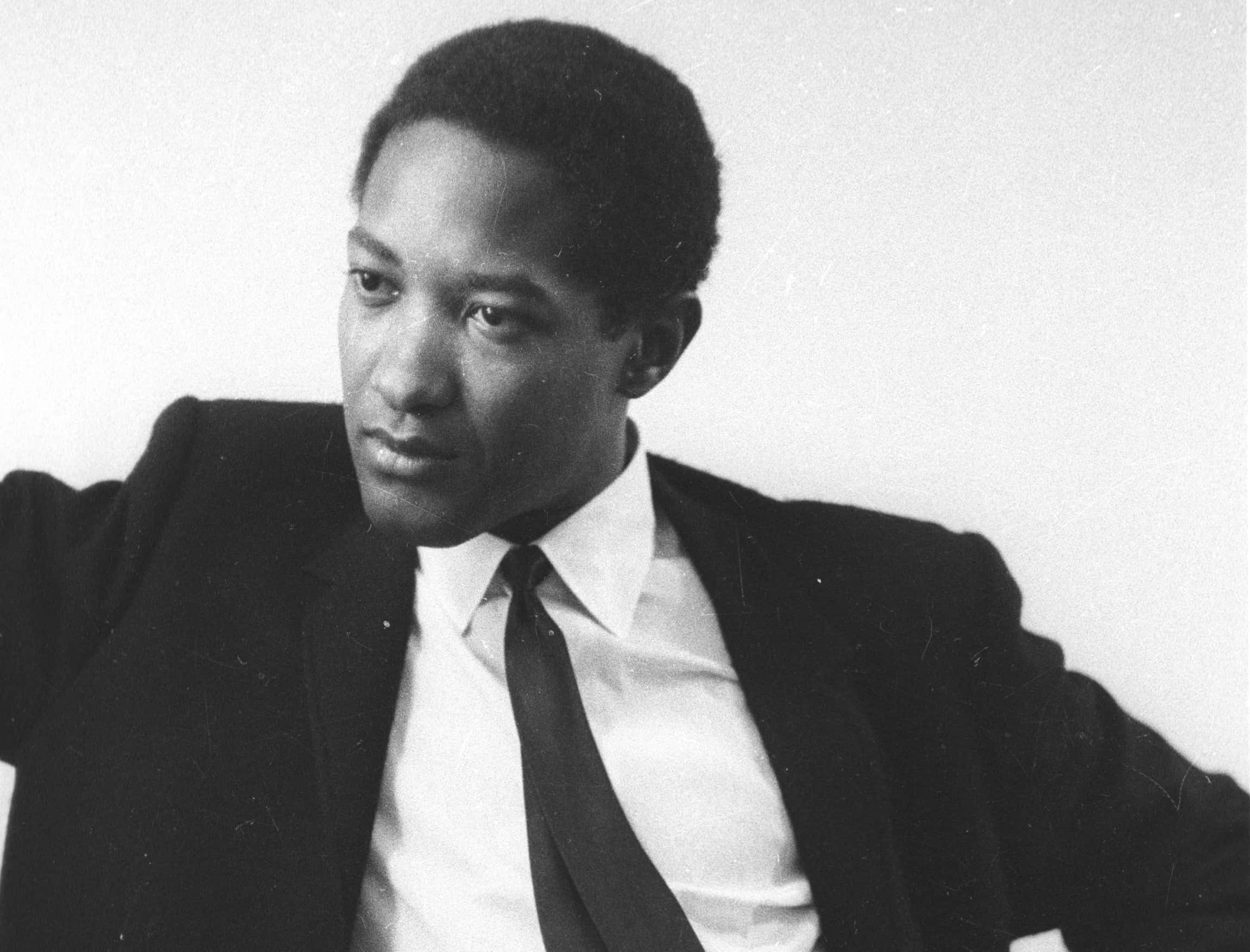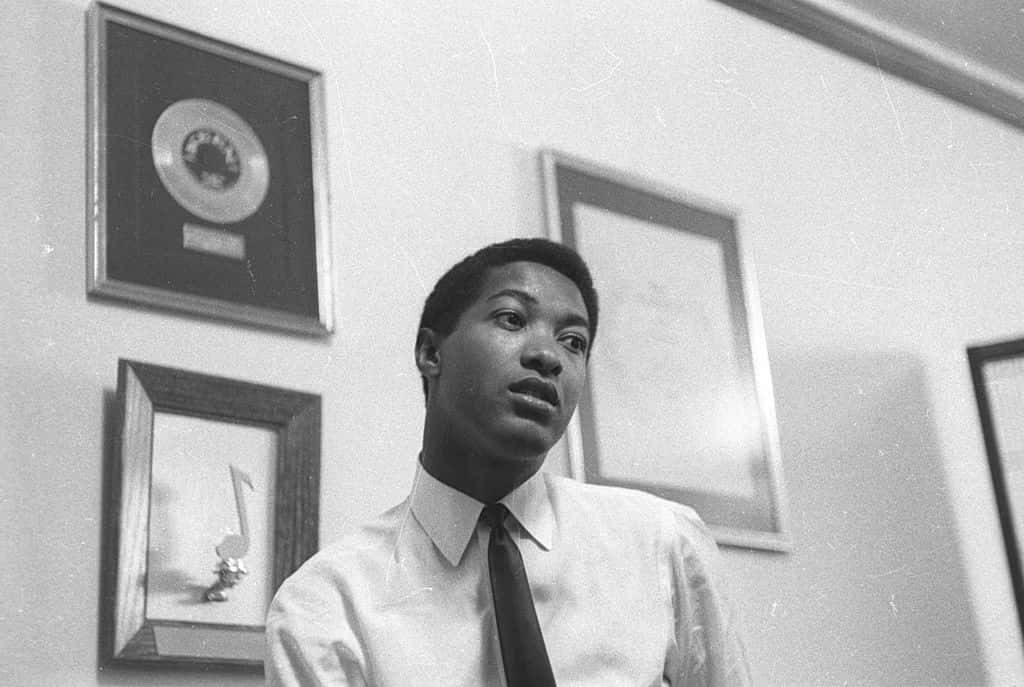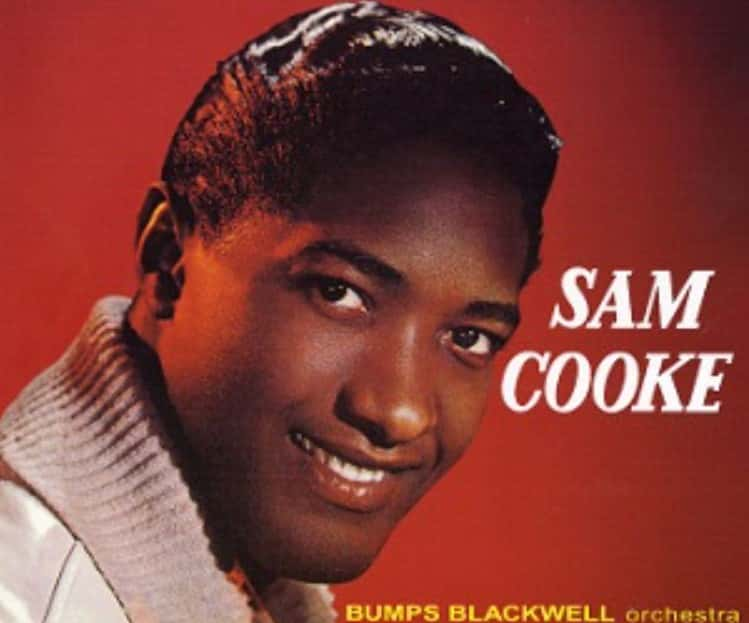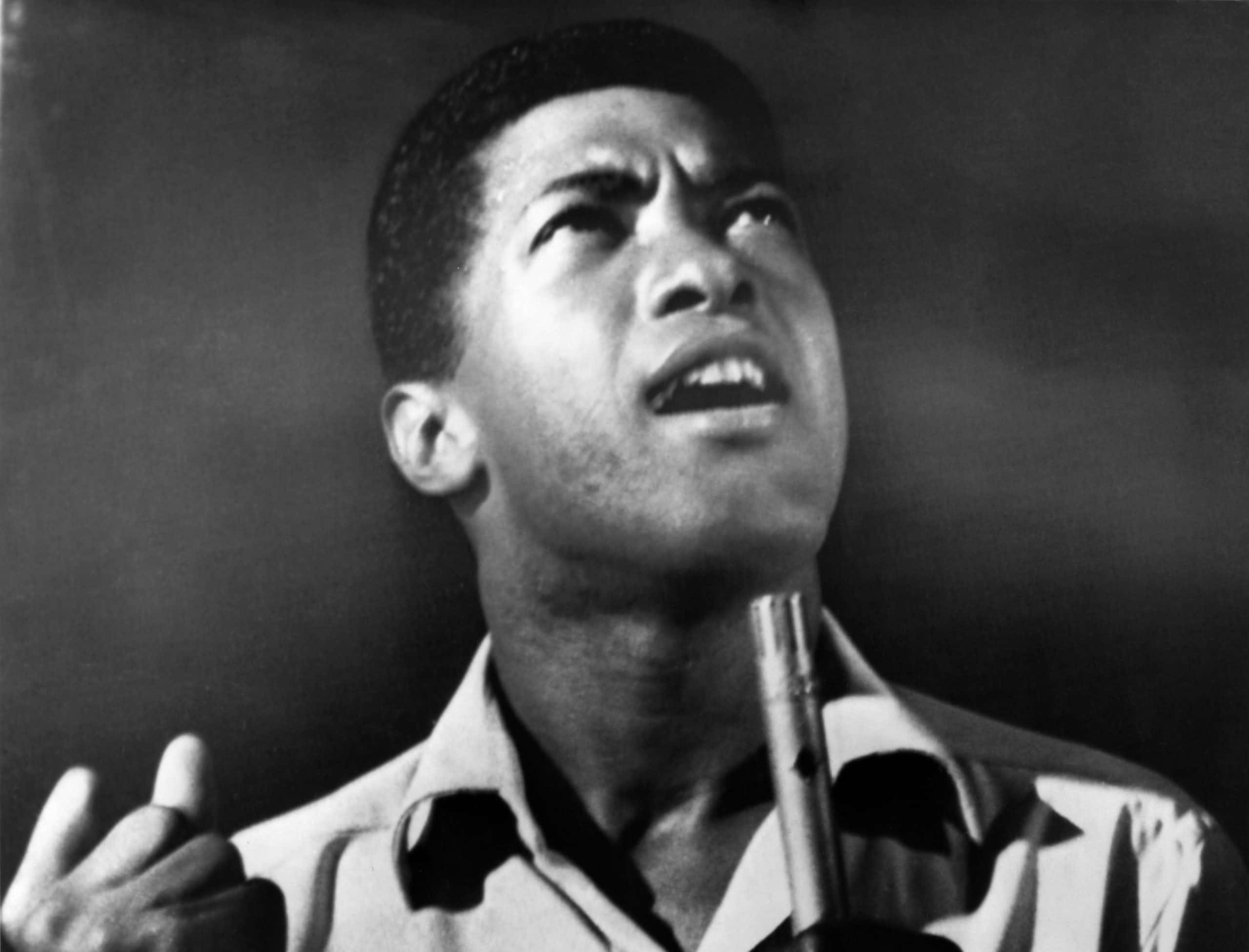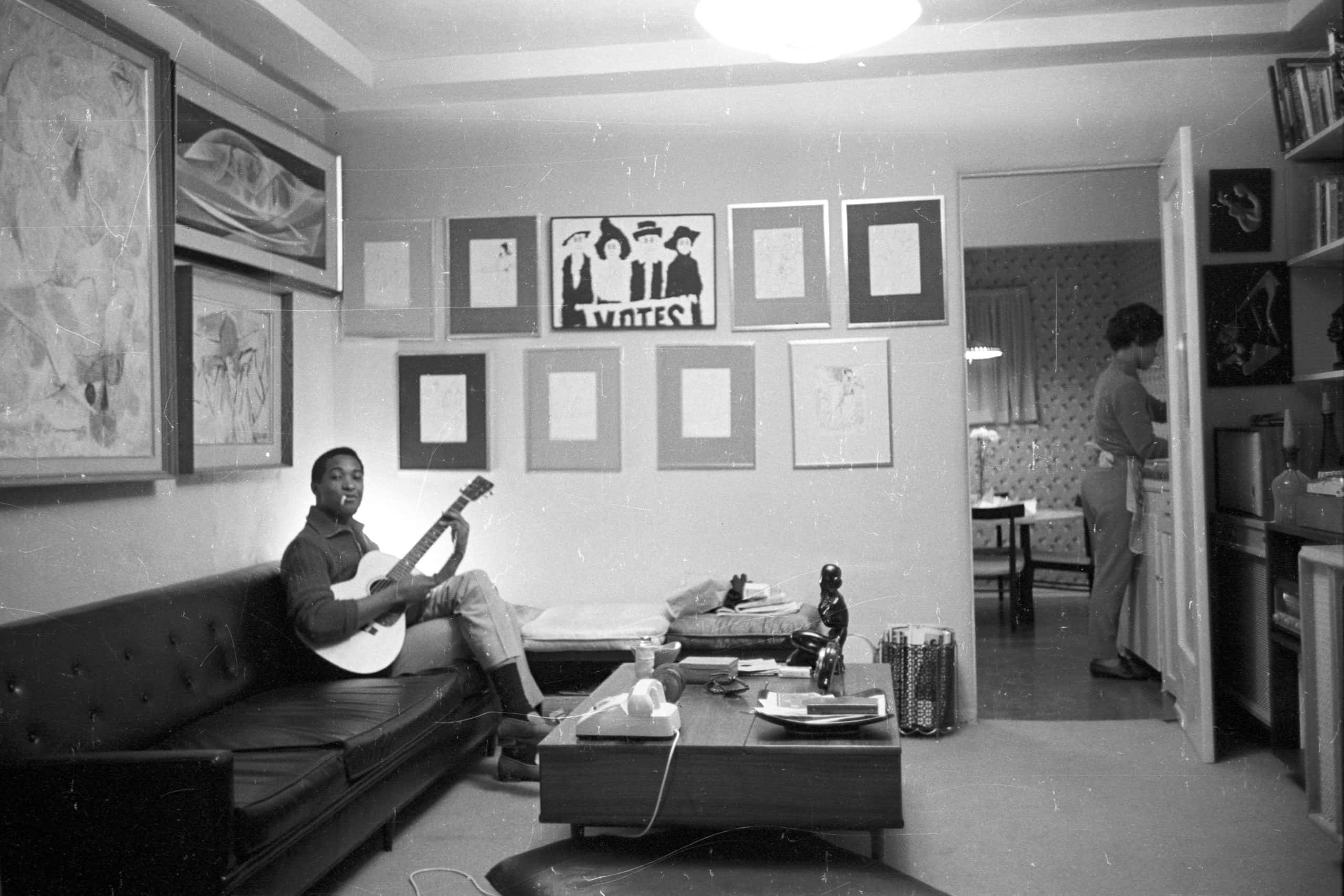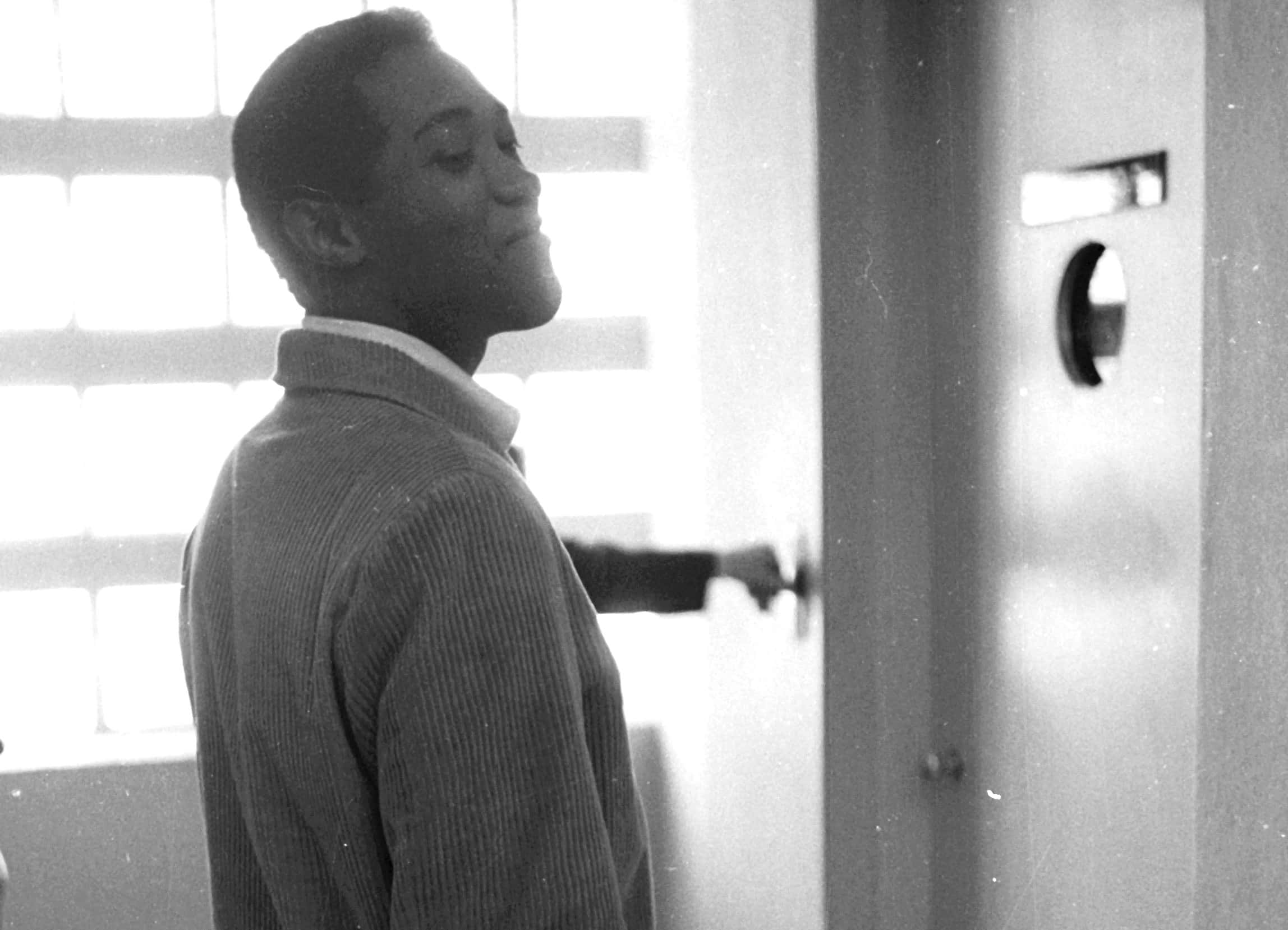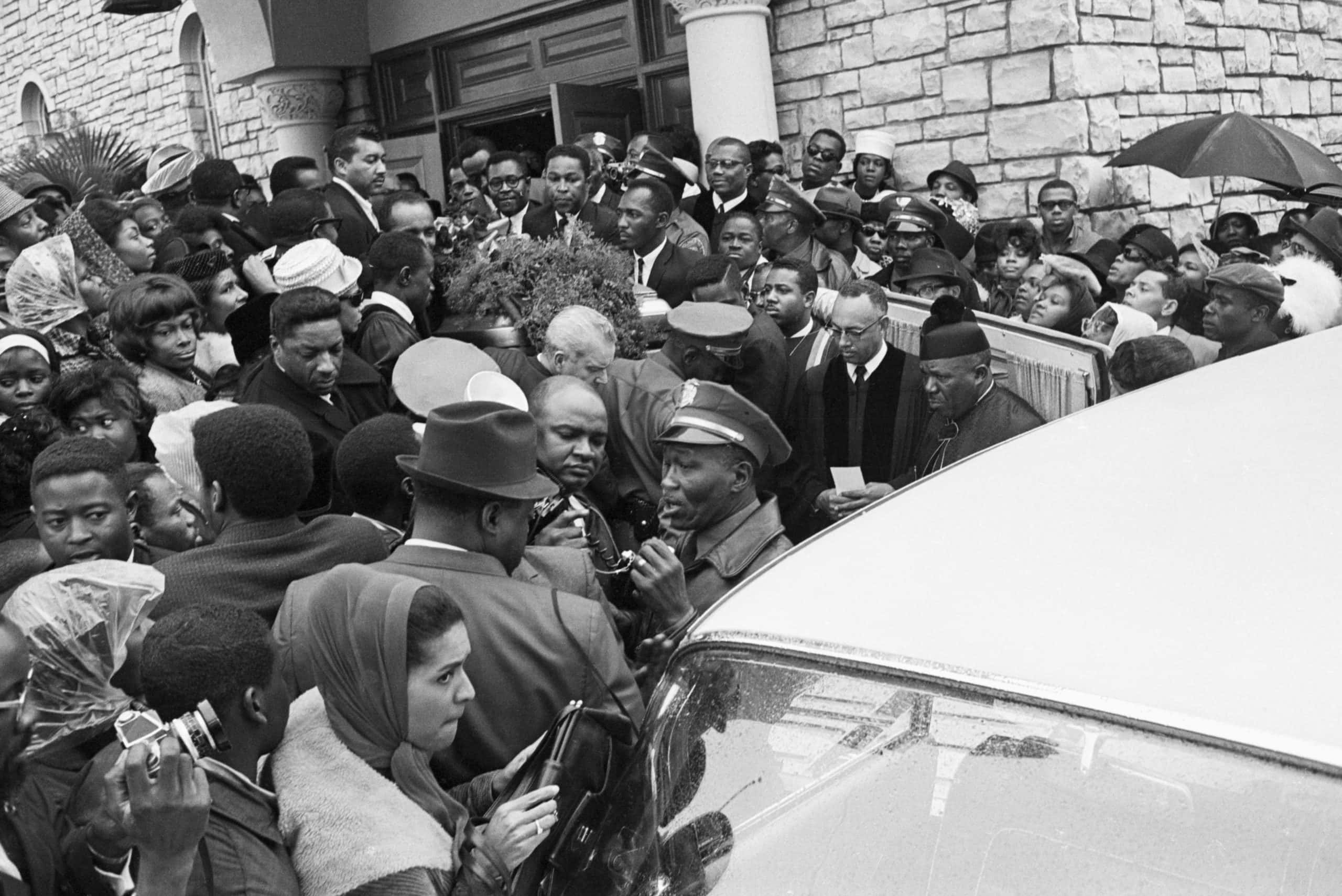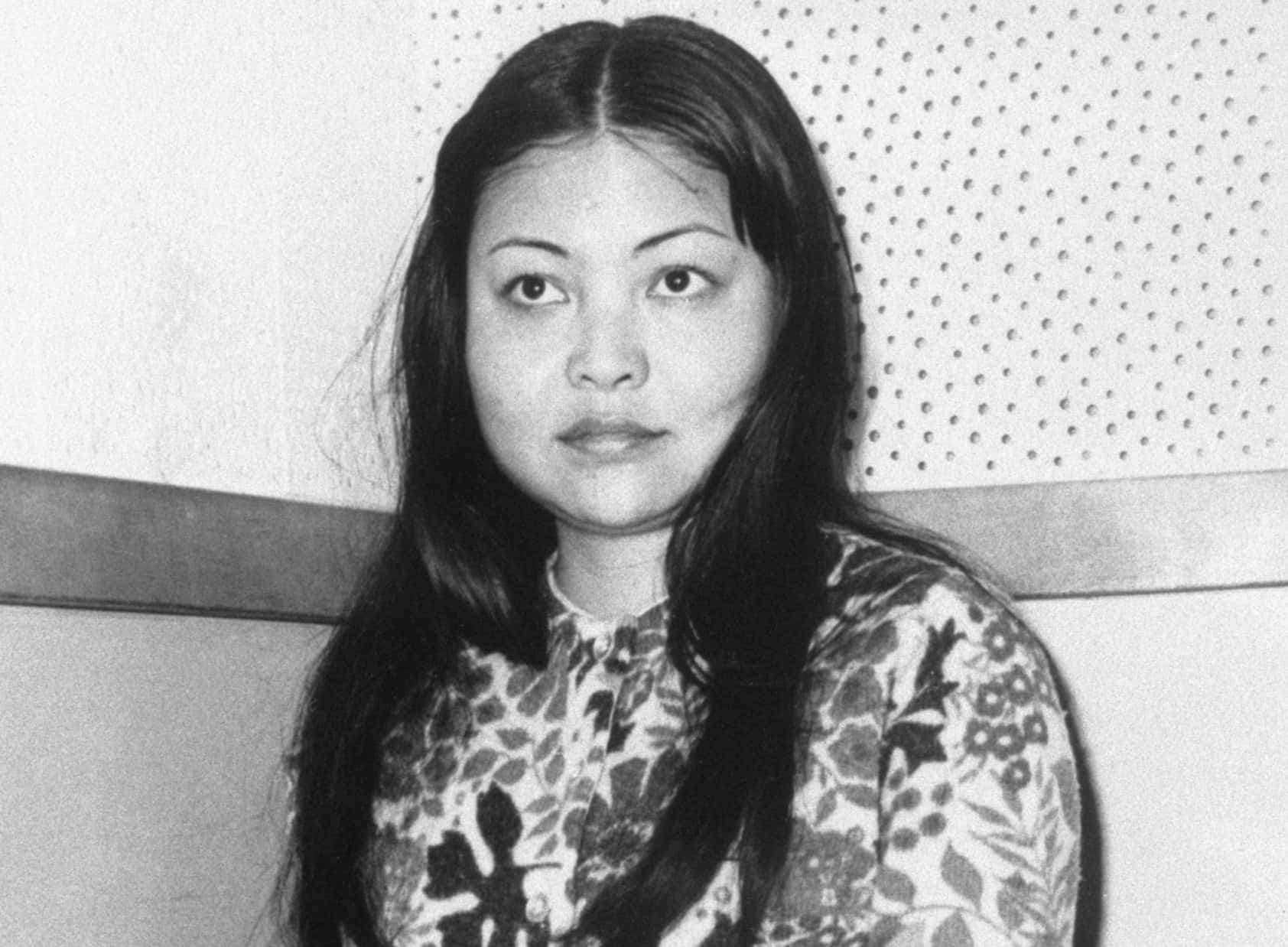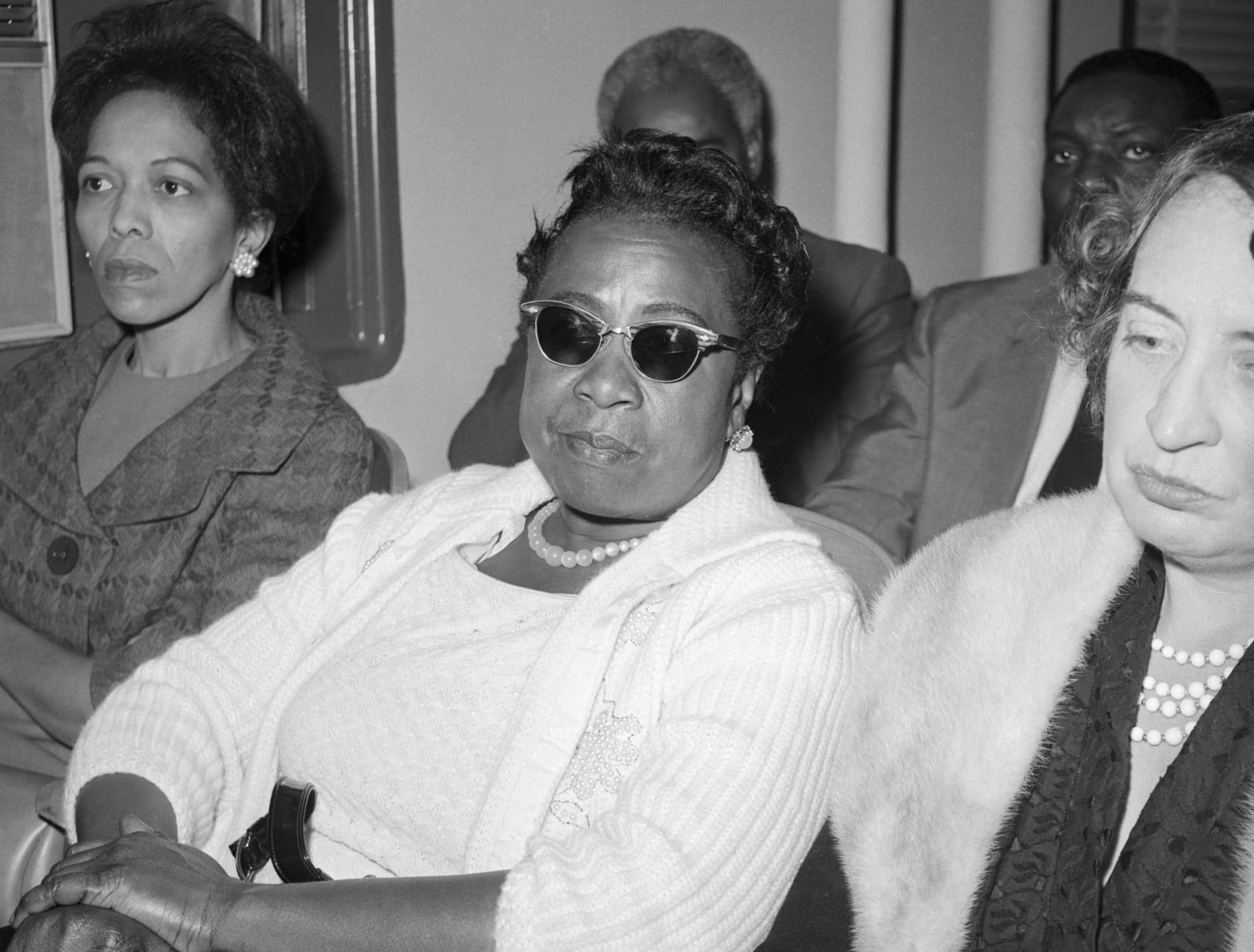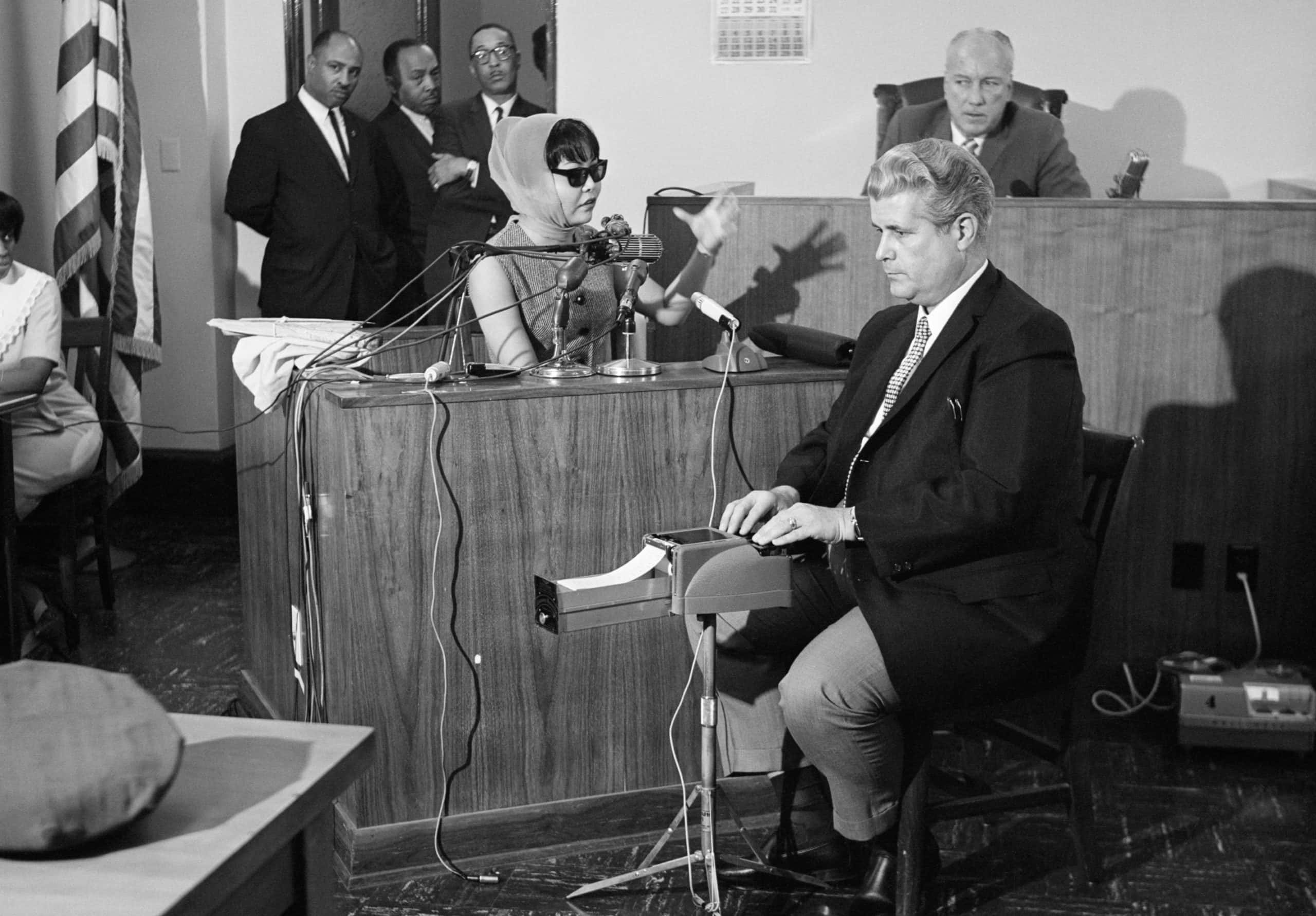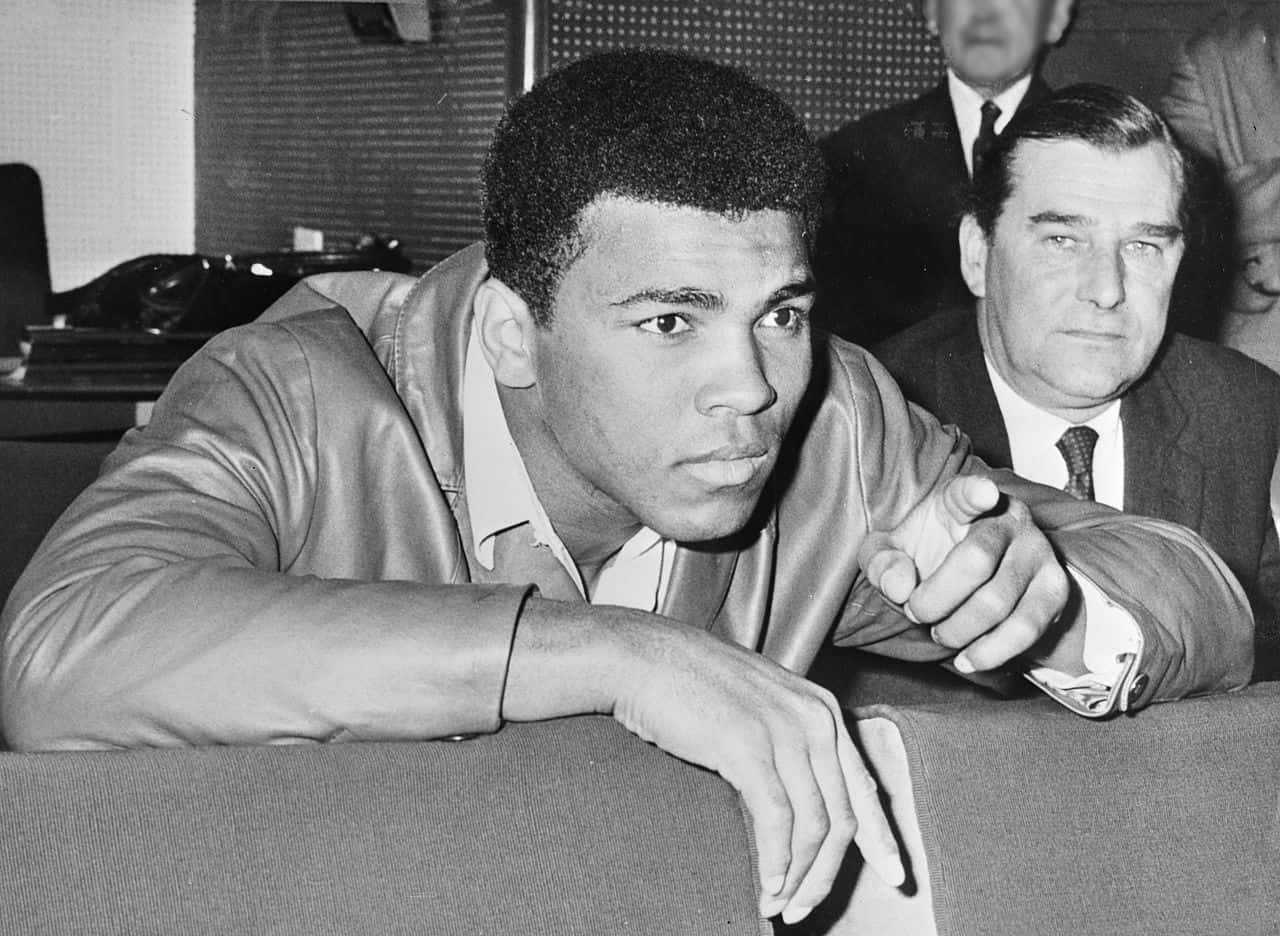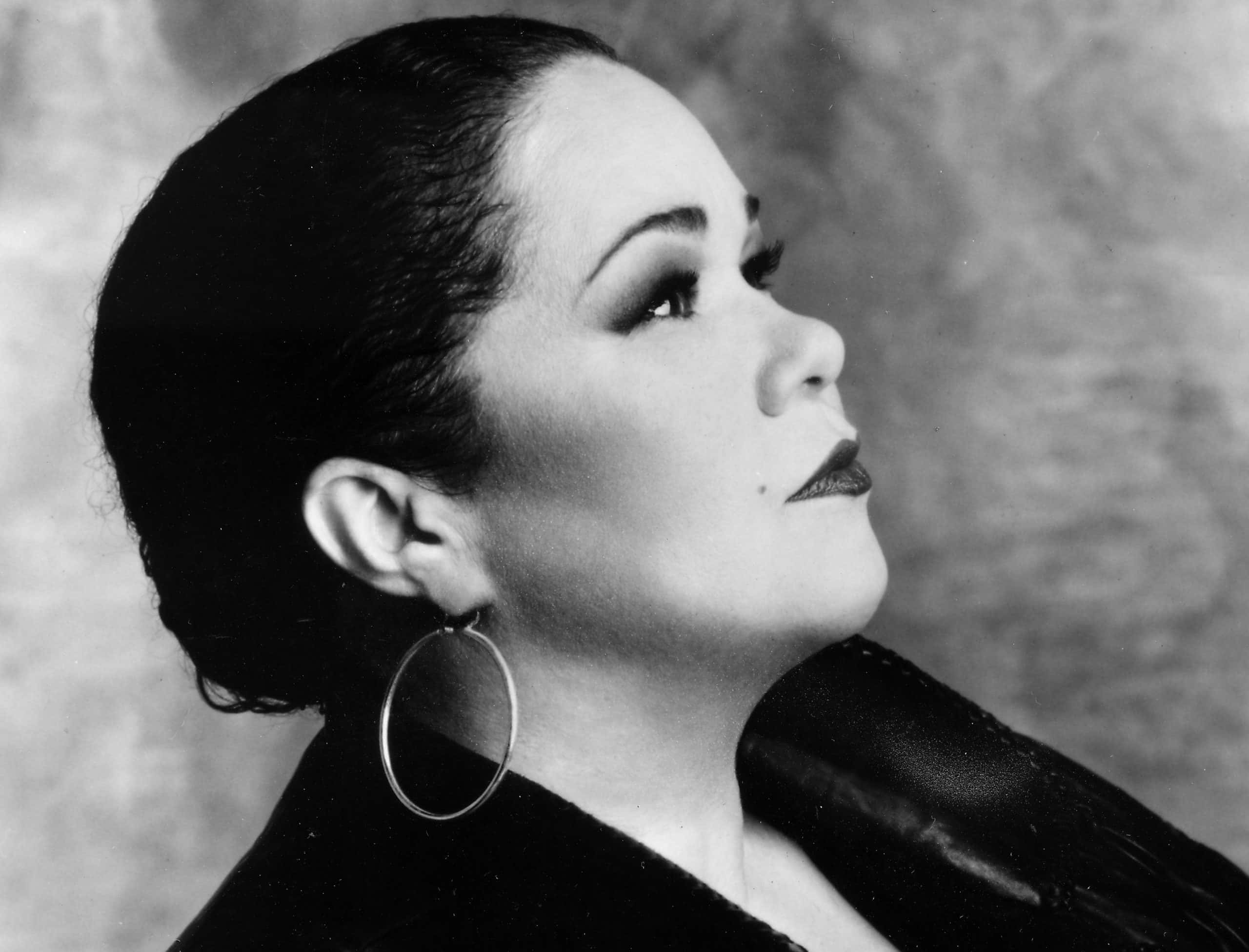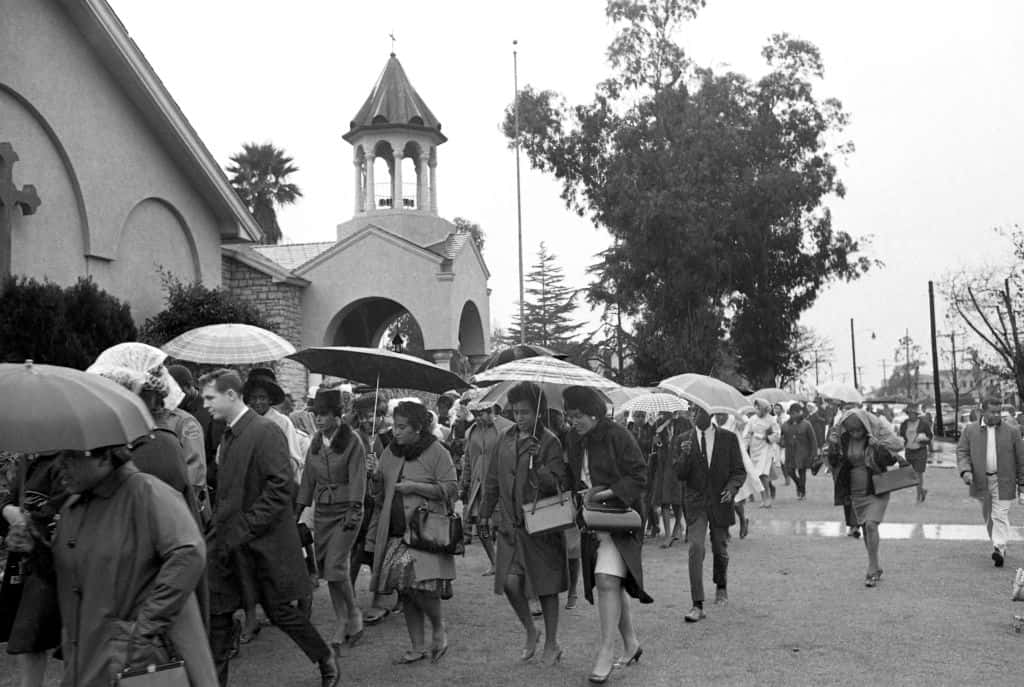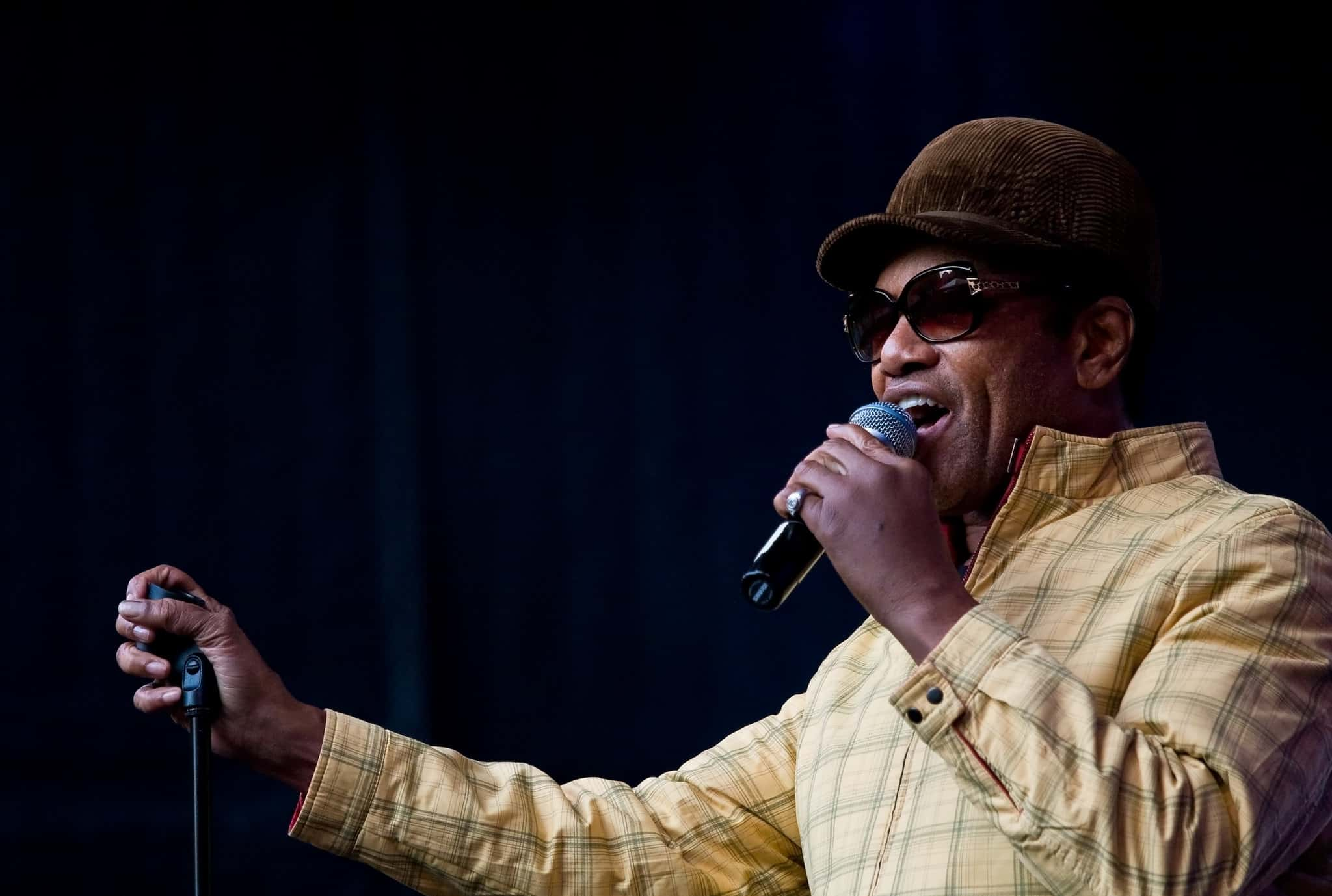There are few artists in history who can claim to have made as big an impact as the one and only Sam Cooke. From defining one genre to completely revolutionizing another one, he changed the music world forever. Sadly, his rise to stardom was as inspiring as it was tragic. To this day, Sam Cooke's mysterious demise has steeped his legacy in a chilling conspiracy.
1. He Had Surprising Origins
Our singer’s life began on January 22, 1931, in Clarksdale, Mississippi. Those familiar with the Southern-inspired origins of his singing style probably aren’t surprised to learn of his place of birth. But there's something surprising about Sam Cooke's origin story. He never actually grew up in the South. Sam Cooke’s family moved to Chicago during his infancy—and it set the scene for his tumultuous rise to stardom.
2. He Had Humble Beginnings
Cooke may have ended up in the glitz and glamor of celebrity life, but he started out in a wildly different environment. His father was a reverend who raised the future singer and his seven siblings in a decidedly religious setting. As such, Cooke’s first exposure to singing came in the form of participation in a children’s gospel choir. These were humble beginnings—but it was only a matter of time before he tapped into his more rebellious side.
3. He Challenged His Upbringing
Cooke’s first taste of widespread recognition as a singer came with his involvement in the gospel group, “The Soul Stirrers.” His membership in this group allowed him to show off his vocal talents and build up a following of fans who appreciated it. But time would reveal that Cooke and Christian music were far from a match made in heaven.
4. He Was A Born Rebel
From early on, people who knew Sam Cooke could tell that he marched to the beat of his own drum. He did what he wanted without worrying about society’s expectations. For instance, even at a time when society did not accept Black Americans taking part in many activities, Cooke brazenly took his nieces and nephews to predominantly white amusement parks.
He rode roller coasters with them—not caring one iota about all the disapproving glares people shot their way. Clearly, Cooke didn't mind rocking the boat, and boy, did he make the most scandalous splash.
5. He Had A Dirty Little Secret
Despite his angelic voice, Sam Cooke’s behavior in his personal life didn't always live up to what gospel music fans expected of a singer from the religious sphere. During his early years with the Soul Stirrers, Cooke fathered a child out of wedlock with his former high school sweetheart, Barbara Campbell. To say this caused some major issues would be putting things lightly…
6. He Abandoned His Child
Cooke’s having a child out of wedlock would have meant a major, potentially career-ending, scandal for him as a member of a religious musical group during the socially conservative 1950s. As a result, Cooke kept quiet about the birth of his child. Even worse? He did not stick around to help as a parent. For the next several years, Campbell had to raise the child on her own while Cooke toured the churches of America, performing.
If that wasn’t controversial enough already, the singer soon upped the stakes even higher.
7. He Ditched The Mother Of His Child
In 1953, about a year after his secret child’s birth, Cooke officially abandoned Campbell by announcing his engagement to Dolores Milligan, a dancer better known as Dee Dee Mohawk. Cooke’s marriage to Milligan caused some controversy in its own right. Milligan was a single mother herself, at a time when society frowned upon such things. And that wasn't all.
8. The Marriage Had Issues
To make matters worse, Cooke proved to be a serial philanderer who never remained faithful to one woman at a time. His infidelity spelled disaster—and it doomed his first marriage to a heartbreaking end. After only six years of trying to make it work, Cooke and Milligan finally filed for divorce. For Cooke, however, this wasn't his only source of personal strife.
9. He Faced Discrimination
Cooke’s personal life was fraught, but so was the reality of every Black citizen in the late 1950s. As already discussed, Cooke’s career began at a time when there were major restrictions on what Black Americans could do in many parts of the United States. Even popular celebrities faced denied access to hotels, restaurants, and more based purely on the color of their skin.
But in Cooke’s case, he had a secret weapon that allowed him to bypass many of these unjust rules…

History's most fascinating stories and darkest secrets, delivered to your inbox daily.
10. He Found A Way Around It
Because Sam Cooke could introduce himself as a singer of religious music, many establishments found some otherwise absent sympathy and viewed him as doing “the Lord’s work.” They would therefore break their own rules and let him in, despite barring entry to all other Black Americans. Moments like this cemented Cooke's infamous reputation: He did whatever he wanted, whenever he wanted.
11. Things Went From Bad To Worse
Sadly, the Dolores Milligan saga didn't simply end in an unpleasant divorce. About a year after she and Cooke split up, tragedy struck: Milligan died in a devastating car accident. As you can imagine, people were shocked, especially since Milligan left behind a young son. What had appeared to be a happy family just a year earlier now found itself in shambles.
12. He Had A Caring Side
The loss of his ex-wife must have affected Cooke more than the public expected because he did not just sit back and do nothing when he heard the news. In a touching gesture, Cooke chose to completely pay for Milligan’s funeral expenses, even though she had no longer been his wife at the time of her death. But while the singer deeply felt her loss, he showed no sign of slowing down in the romance department.
13. He Loved A Lot Of People
The turbulent nature of Cooke’s love life didn’t change much throughout the 1950s. During the few years he spent as a member of the Soul Stirrers gospel group, he got three different lovers pregnant—and those are just the ones we know about! At least some of these affairs presumably took place during his married years. Not quite the squeaky-clean image fans of a Christian musical group expected…
14. His Habits Came Back To Bite Him
If Cooke had been hoping to keep his affairs and illegitimate children a secret from the press, then he definitely wasn’t happy with what happened to him in 1958. A Philadelphia woman named Connie Bolling tried to take him to court, openly claiming the singer had fathered her son and that he owed her money. Cooke quietly settled the case out of court, paying Bolling a settlement of roughly $5,000.
At this point, the singer's bad publicity had grown tall and incriminating—but then he made a shocking decision.
15. He Finally Gave His Ex A Chance
In 1958, perhaps to return to some degree of stability after all this philandering, Cooke settled down and finally married his original high school sweetheart—Barbara Campbell, the mother of his first child. The couple went on to have another two children together over the next few years—leaving them with Linda, Tracy, and Vincent.
But although it sounds like a huge mess, Sam Cooke got some much-needed support from a surprising corner.
16. He Got Free Wedding Services
When Cooke decided to settle down with Campbell, it seemed that his deeply religious parents approved—the singer’s father, being a reverend, officiated over the wedding ceremony. Unfortunately, this moment of peace between father and son would prove to be the exception and not the rule. In fact, fate had another cruel twist in store for Cooke...
17. He Suffered A Family Tragedy
As idyllic as Cooke’s new family life may have seemed, things were not all fun and games—especially not on a dark day in the summer of 1963 when tragedy struck. Cooke’s infant son, Vincent, had been playing beside the family pool and accidentally fell into the water. An emergency was clearly underway—and the consequences were horrific.
18. The Worst Possible Outcome Came True
Unfortunately, when Vincent fell into the pool, a preoccupied Barbara was busy inside the house. She was completely oblivious to her son's peril. Several minutes passed before she came outside, discovered the scene, and dove into the water to try and rescue her son. But, tragically, it was too late—poor young Vincent had already drowned.
19. He Had A Close Call
In addition to losing a wife and child, Cooke endured another brutal experience within the span of a few short years. In late 1958, while riding in a car from St. Louis to Greenville, Mississippi, a fatal crash took the life of his driver—and put Sam Cooke and his fellow passengers into the hospital. For Cooke, the blows never seemed to stop coming.
But while the singer faced multiple crises in his personal life, his career had also shifted in a startling direction.
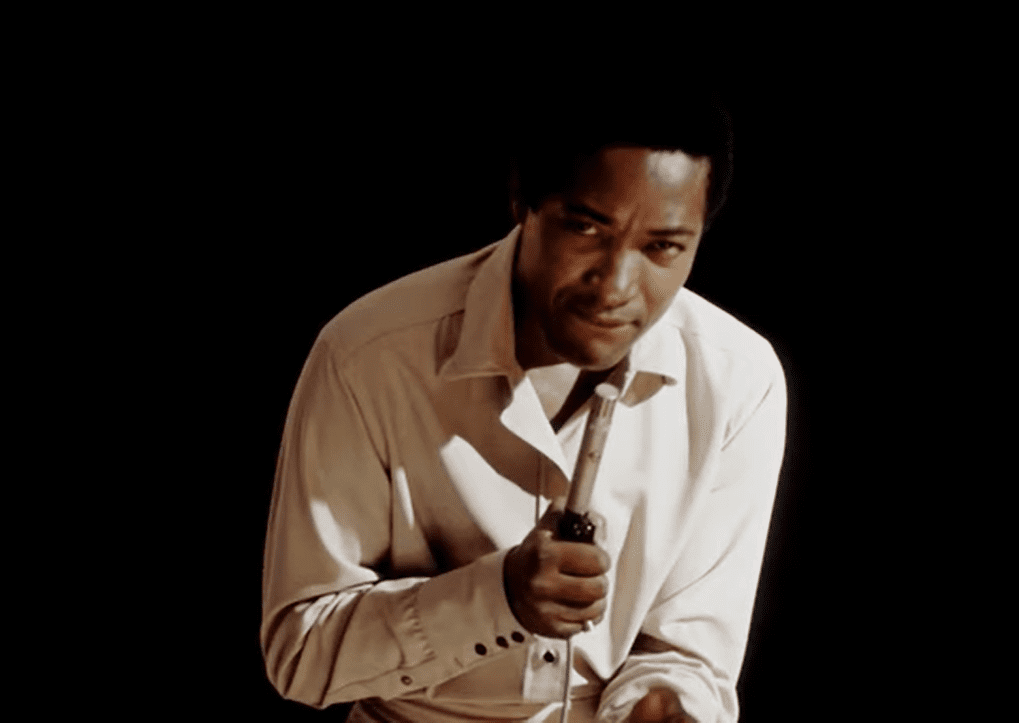 ReMastered: The Two Killings of Sam Cooke (2019), Netflix
ReMastered: The Two Killings of Sam Cooke (2019), Netflix
20. He Made A Major Change
Sam Cooke’s life and career changed forever the day that he decided to leave the gospel music scene and, instead, pursue a career in the pop music genre. At first, he feared that his very religious fans and associates would not approve of this change—so much so that he actually kept it a secret. He recorded his first pop songs under the pseudonym, "Dale Cook"—but unfortunately, this dramatic shift did not go down easy for everyone.
21. The Change Caused Controversy
As he feared, Cooke’s decision to switch from gospel to pop became extremely controversial within his circles. As one of the genre’s most beloved figures, the gospel music community felt his leaving to be a major blow—and some even accused the singer of turning his back on his spiritual purpose. So what exactly prompted this 180-degree change?
22. He Had Surprising Reasons
Turning one’s back on a successful career for a shot at completely untested waters isn’t something that just happens. Yet the singer pulled it off. Cooke has cited two reasons for the decision to switch to pop music. The first was his desire to reach more fans than just those that follow the gospel scene. The second, quite bluntly, was his need to earn more money and the feeling that the pop industry was a better place to do this than the one he started in.
Of course, it was this risky move in particular that made him so legendary.
23. He Created A Style
Even after the switch to pop, Cooke never completely abandoned his musical roots—in fact, in many ways, his background made him who he is. By imbuing pop songs with his perfected gospel singing style, and many of the unique idiosyncrasies that came with it, Cooke essentially brought the gospel experience into the mainstream consciousness—and, in the process, became the founder of the “soul music” genre.
As a result, countless beloved singers could later point to Cooke as the trailblazer who made their music possible. However, there was one important person that the singer truly let down.
24. His Family Had Mixed Feelings
Cooke’s own father proved to be one of the people most upset by Cooke’s switch from gospel to pop. Being a reverend, you can imagine that a career in secular music isn’t what he had in mind for his son. Thankfully, with time, the reverend changed his mind and supported Cooke's career choice. The singer later stated, "My father told me it was not what I sang that was important, but that God gave me a voice and musical talent and the true use of His gift was to share it and make people happy."
25. He Modified His Name
Although the entire world knew him as “Sam Cooke,” the singer’s name at birth was actually slightly different. The family always spelled their last name “Cook,” with no ‘e’ at the end. So where exactly did this extra letter come from, you ask? Well, since the singer wanted his shift to the pop music genre to mark a new era in his life and career, he changed the spelling of his name to symbolically represent a fresh start—and he never looked back!
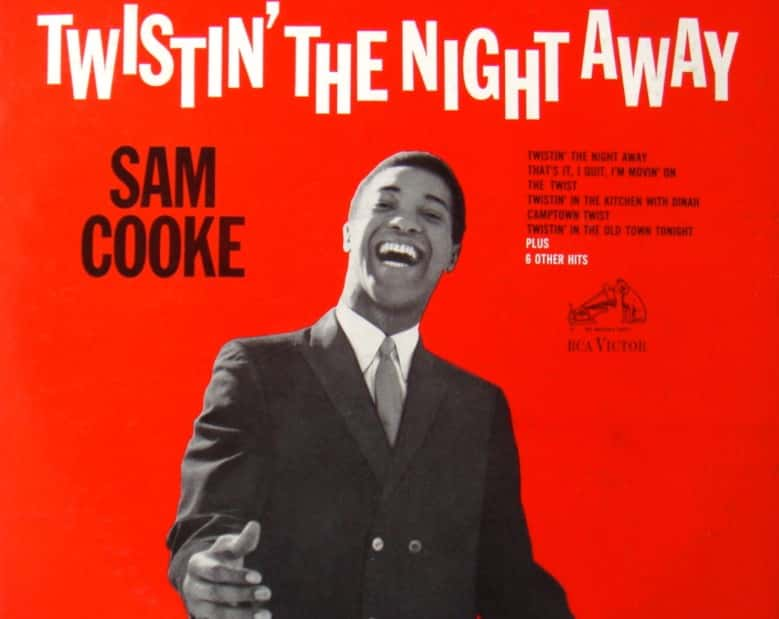 Flickr
Flickr
26. He Received A Life-Changing Invitation
One particular performance would prove to be a major stepping stone in Cooke’s career: his appearance at the famous Copacabana nightclub in New York. High society at the time considered this club the pinnacle of serious pop culture and art, but up until this point, no singer like Cooke had ever played there. As a result, the Black singer ruffled some serious feathers.
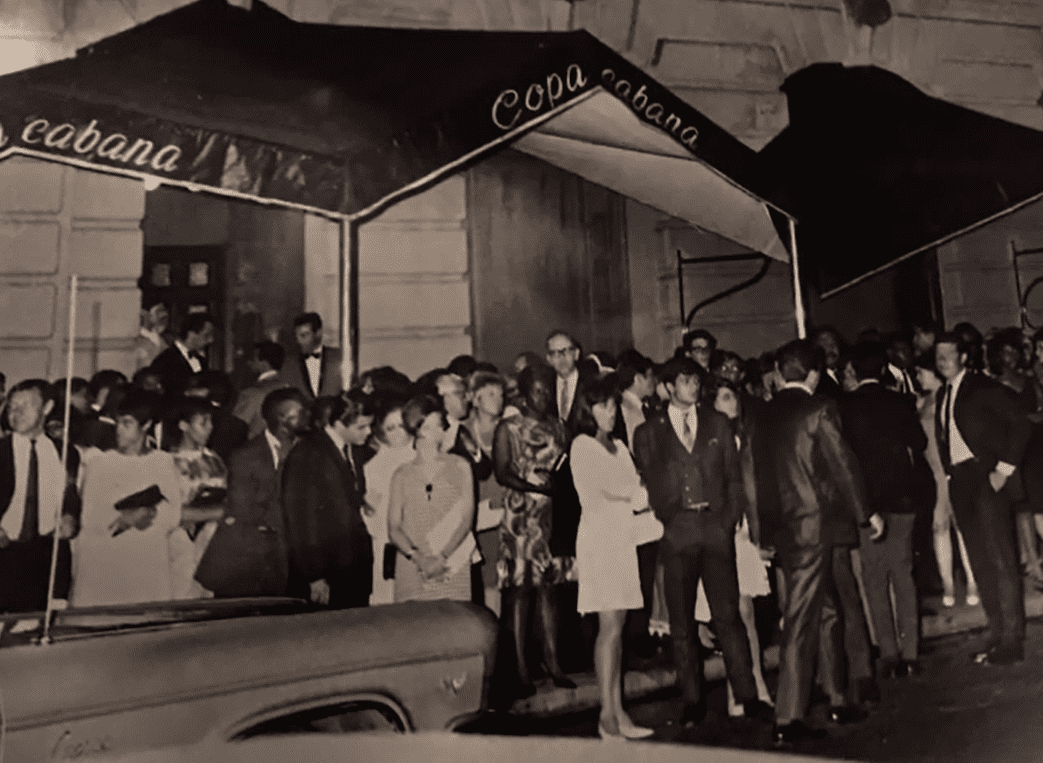 ReMastered: The Two Killings of Sam Cooke (2019), Netflix
ReMastered: The Two Killings of Sam Cooke (2019), Netflix
27. There Were Obstacles From The Start
The Copacabana enforced a restricted, exclusively white audience policy, and the only Black performers to ever play there had to acculturate their styles to this audience’s sensibilities in order to be allowed in. Cooke’s singing, however, was unmistakably not that. As uncomfortable as the situation made him, Cooke decided to accept the invitation in the hopes of warming the white managers and audience up to other people and their culture.
But things did not go exactly as planned…
28. He Took A Risk
Cooke’s raw, free-flowing singing style did not go over well with the uptight Copa audiences and critics. A Variety magazine review claimed he did not “seem to be ready for the more savvy Copa clientele.” Even though his unfamiliar style proved too much for this conservative audience to handle, Cooke had broken a crucial societal barrier—and it was quite the step forward.
With time, this performance would prove to open up new opportunities for Black entertainers all across the country in places where they were previously discriminated against. However, his massive influence didn't end there.
29. He Played A Role In History
On a related note, one of the things Cooke is best remembered for today is the role he played in the civil rights movement. In the early 1960s, as one of the most prominent Black cultural figures in the broader public eye, he became instrumental in making the American public aware of the struggles that minorities faced due to discriminatory laws and policies.
Over the next few years, he would become closely associated with icons such as Malcolm X, Muhammad Ali, and Jim Brown—with whom he would regularly campaign for the cause of equality.
30. He Had No Exemption From Hatred
Despite his many privileges as a celebrity, Cooke was still no stranger to discrimination. On one occasion, he tried to check into a Holiday Inn with his family. Despite having confirmed a reservation by phone earlier, the clerk nervously informed him that there were no rooms available upon seeing his potential guests’ race. Something questionable was clearly going on here…
31. He Didn’t React Well
This obvious case of discrimination did not sit well with Cooke. Despite his wife trying to calm him down and warning him of the potential consequences of making a scene, the singer threw a fit and refused to leave without speaking to the manager. The clerk promptly threw the entire family out on the street. But even that didn’t stop the singer from making his feelings known.
32. He Took One For The Team
Even after being thrown out of the motel, Sam Cooke refused to back down. He wasn't just going to ignore such blatant injustice. He led his entourage in a loud protest outside the building, where they made as much noise as possible and even blared their car horns. Eventually, because of the ceaseless noise, the authorities showed up—and Cooke spent the night behind bars.
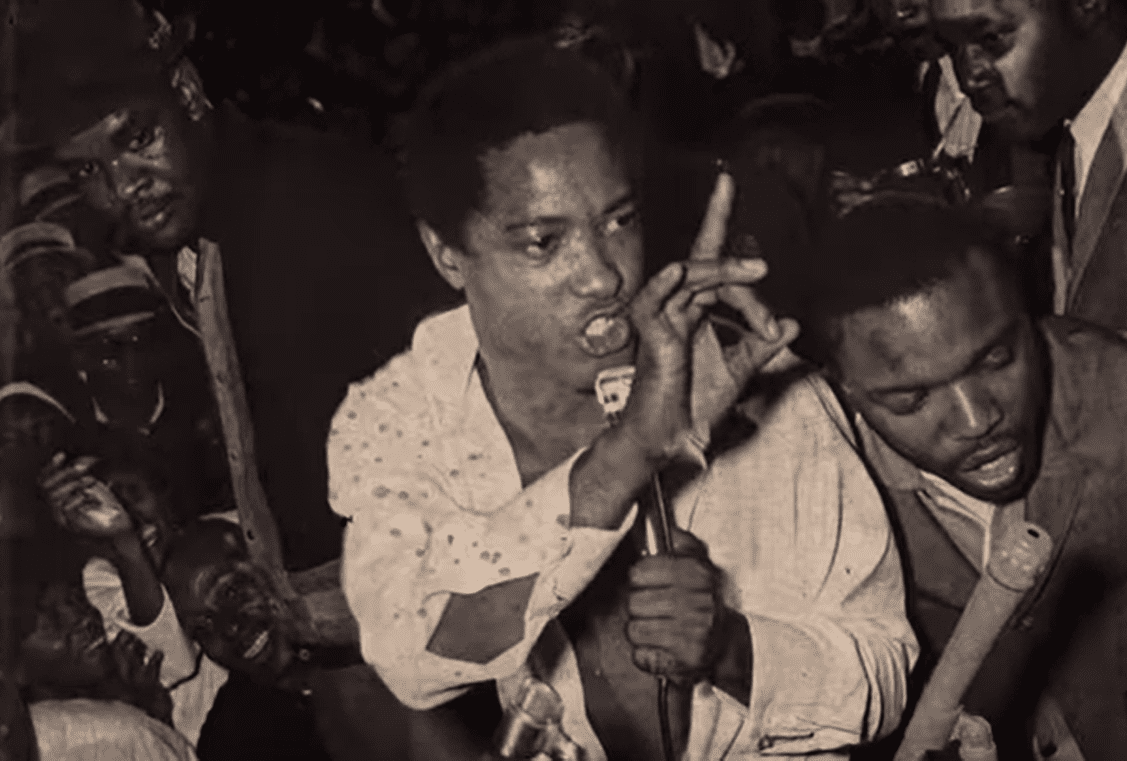 ReMastered: The Two Killings of Sam Cooke (2019), Netflix
ReMastered: The Two Killings of Sam Cooke (2019), Netflix
33. His Anthem Had An Unlikely Source
The song most associated with Cooke’s civil rights activism is without a doubt the iconic masterpiece, “A Change Is Gonna Come”—but few are aware of the strange history this song has. For a long time, Cooke hesitated to write a song about race relations, fearing that the inevitable controversy might cost him some fans.
Nevertheless, he finally became inspired to do it anyway upon hearing Bob Dylan’s classic “Blowing in the Wind”—which made him realize how large an impact socially-conscious songs can truly have.
34. He Became A Visionary Entrepreneur
As Cooke’s career progressed, it became more and more clear that in addition to being a great singer, he also boasted tremendous business acumen. At a time when the music industry took advantage of artists, and many singers suffered the dire consequences of shady, unfair deals, Cooke created his own record label in order to control the rights to his own work and ensure that he received proper compensation.
His personal label would go on to produce famous names such as Mel Carter, Johnnie Taylor, and Bobby Womack. But when it came to challenging the status quo, Cooke was just getting started.
35. He Was An Innovator
In the 1950s and early 1960s, most pop musicians predominantly released their music as singles rather than full albums—especially in the R&B genre. But this proved to be yet another norm that Cooke would smash. After several years of following the accepted practice of releasing singles, Cooke eventually came out with two full studio albums—both of which received critical acclaim and set the stage for a generational paradigm shift in the industry.
Unfortunately for Cooke, in pursuit of his creative freedom, he ran into an infuriating challenge.
36. He Protected His Creative Integrity
One of the defining features of Cooke’s singing style is his soulful injection of exclamations such as “woah, woah” in between the lyrics—but apparently not everyone understood how this worked. On one occasion, a studio executive sitting in on a recording session tried to demand that Cooke add several more “woah, woah”s at certain specific points in the song.
A frustrated Cooke wound up having to explain the concept of feeling and improvisation to this gentleman, while politely letting him know that “woah, woah” timing could not be dictated by a businessman.
37. He Had Another Passion
In addition to music and activism, Cooke had another hobby that many fans might not know about—he was an extremely avid reader. From childhood all the way through his adult life, he could constantly be found reading everything from newspapers, to magazines, to history books, to classic works of philosophy. In fact, his obsession with reading led him to install an airplane swivel light in his car, so that he could pull out a book and read while en route from place to place.
38. He Had A Cruel Fate
At this point, it should be clear to all that Cooke had everything in the world going for him in the early 1960s—which is what makes the next part of his story all the more tragic. One dark night in December 1964, authorities got a call indicating that a strange incident had just gone down at a cheap Los Angeles motel, resulting in a Black male bleeding out in the lobby. The victim's identity sent shockwaves through the world.
39. He Didn't Survive
Confusion and sadness became utter shock when the victim of this incident turned out to be none other than our very own Sam Cooke. Poor Cooke did not survive his injuries. But what was he doing at that motel? And how could this legend have been taken from the world so suddenly? According to the official report, here is what allegedly went down on that fateful night.
40. The Story Made Little Sense
Cooke apparently checked into a motel room with a woman named Elisa Boyer. After using the bathroom, he discovered that Boyer had run off with his clothes. When he ran downstairs to try and catch up with her, some kind of scuffle ensued between the singer and the motel’s manager, Bertha Franklin—during which Franklin shot Cooke “in self-defense.”
Right from the outset, however, people had all sorts of questions about this official account.
41. He Had Famous Last Words
With all the questions that have surrounded Cooke's demise, one detail about it has become almost iconic—albeit in a tragic way. Upon being shot by Franklin, Cooke allegedly uttered a phrase that will now be forever associated with his memory: “Lady, you shot me!” Apparently, he said the words in a tone of pure confusion—adding further mystery to what actually happened.
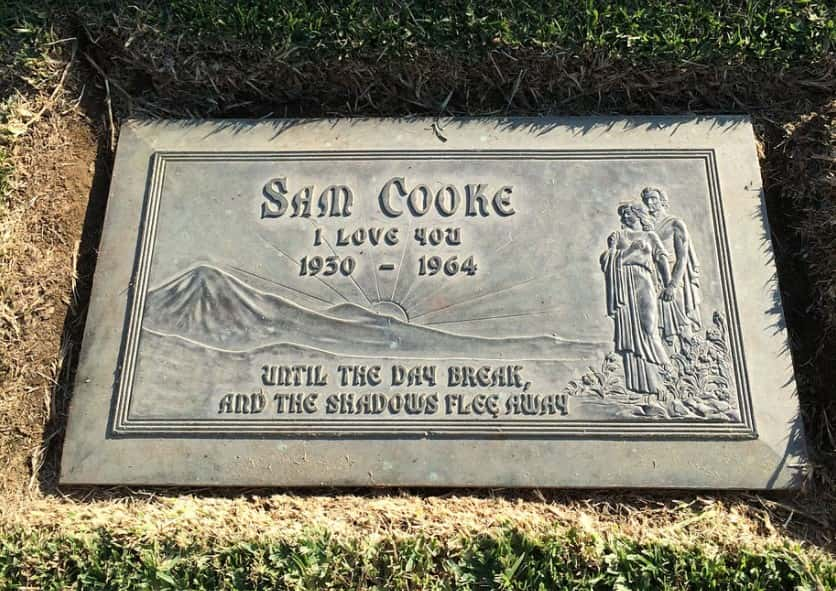 Wikimedia Commons
Wikimedia Commons
42. The Story Gets Weirder
Franklin claimed that after shooting Cooke, he began trying to attack her—at which point, she allegedly whacked him in the head with a broomstick. For all we know, this head injury could have been what sealed the singer’s fate rather than his seeping wound. But this wasn't the only perplexing detail in this increasingly confusing case.
43. There Were Inconsistencies
When questioned about her recollection of the evening’s events, Boyer (the woman Cooke had checked into the motel with) gave a bizarre and inconsistent account of how they ended up there, proving to be a highly unreliable witness. At first, she claimed that Cooke had been trying to physically take advantage of her, which is why she fled. She also claimed to have taken Cooke’s clothes by mistake.
But investigators soon noticed that almost none of the details she provided about where they had been that evening and what they had been doing matched up to reports by other eyewitnesses who had seen them out on the town. Ultimately, in yet another bizarre twist, they concluded that she very well may have been a thief trying to make off with Cooke’s possessions.
44. Some Question The Whole Thing
Many fans and friends of the singer found the news of his passing understandably devastating—but also refused to believe that the incident went down as described. His nephew, for example, points out that Cooke had no reason to risk all his fame and fortune by getting violent with a stranger. Others point out that he was never known to have a bad temper, and find it hard to believe that he would attack a motel clerk.
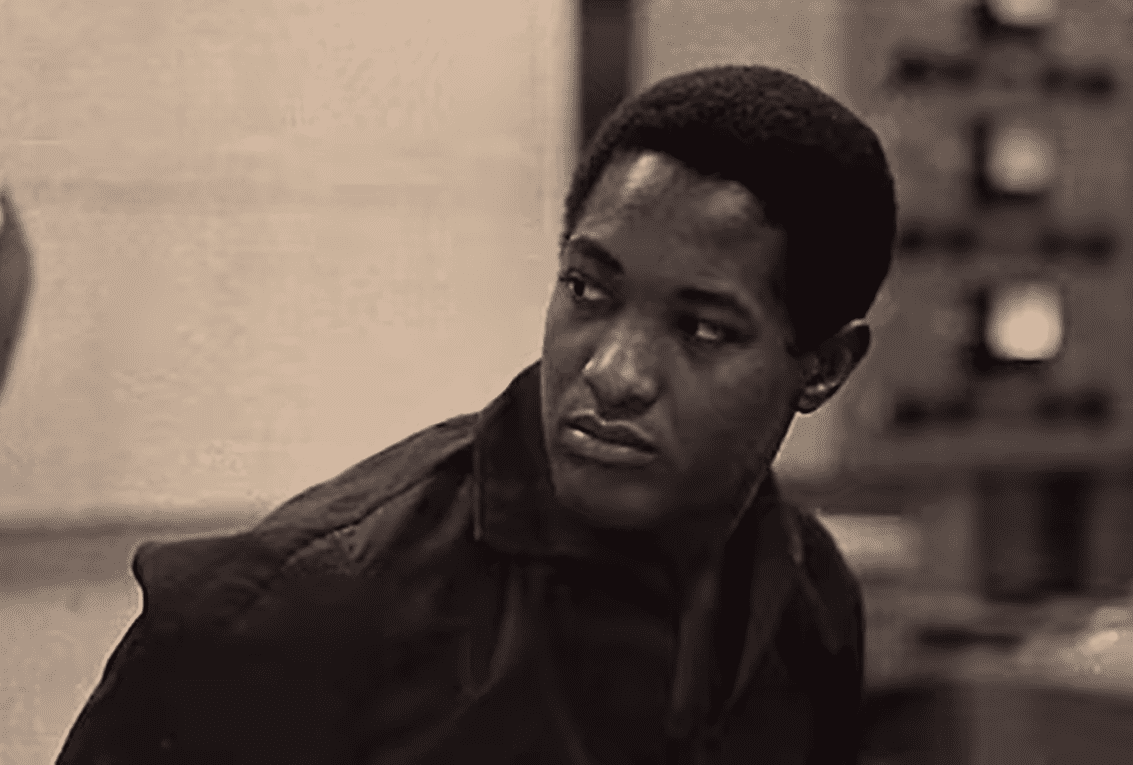 ReMastered: The Two Killings of Sam Cooke (2019), Netflix
ReMastered: The Two Killings of Sam Cooke (2019), Netflix
45. His Passing Became A Conspiracy
For those who don’t believe the official account of what brought about Cooke’s demise, there are all kinds of wild theories out there. Some have suggested that perhaps an angry ex-lover came after the singer for revenge. Others have proposed the idea of possible mob involvement. Regardless, many of Cooke’s family members remain convinced that some kind of intentional conspiracy took place, targeting their loved one’s life.
 One Night in Miami... (2020), Amazon Studios
One Night in Miami... (2020), Amazon Studios
46. His Friend Took Offense
Many have also expressed frustration at the lack of any concrete details being uncovered by the investigation into the incident that took Cooke’s life. Muhammad Ali felt that the authorities didn’t care enough to take the case seriously due to Cooke’s race. Ali once said: “If Cooke had been Frank Sinatra, the Beatles or Ricky Nelson, the FBI would be investigating.”
47. She Wasn't Convinced
As if things weren’t spooky enough already, an interesting development took place just before the authorities laid Cooke’s body to rest. Legendary singer Etta James, another of Cooke’s friends, came to the funeral and viewed the late singer’s body—only to announce that she did not believe what she saw matched up with what the official report claimed had happened to him.
But that wasn't all. Even in death, Sam Cooke still sparked outrage.
48. His Goodbye Took Multiple Tries
In a strange final send-off, Cooke ended up having not one, but two funerals. This is because the initial one, run by some local Los Angeles morticians, was described as having been “shoddy” and wholly insufficient as a tribute to such a legendary man. As a result, Cooke’s body was flown to Chicago, where a crowd of 20,000 adoring fans showed up to bid him a proper farewell.
49. His Daughter Faced Real Horror
Things didn’t get any less bizarre for the Cooke family after Sam’s untimely passing. Within less than three months of the singer’s demise, his widow Barbara had already remarried—and to Cooke’s good friend Bobby Womack, no less. This turned out to be a very bad move. Womack went on to sexually abuse Linda, the family’s oldest daughter.
That friendship would definitely have ended if Cooke could have lived to see the horrors he left behind.
50. Things Still Got Even More Strange
The weirdness of Cooke’s family’s life following his passing didn’t end there. When Linda grew up, she ended up marrying none other than singer Cecil Womack—the brother of the man who had wronged her so horribly. Not only that, but the couple even started a fairly successful musical act together, under the name “Womack and Womack.” The group remained active for more than two decades.
51. He Received Many Honors
When the Rock and Roll Hall of Fame came into existence in 1986, they chose Sam Cooke as one of their very first inaugural members to induct. Three years later, they added his name a second time when they inducted his gospel group, the Soul Stirrers, as members. All in all, the tributes have never stopped pouring in for this one-of-a-kind star, who we lost far too soon.

